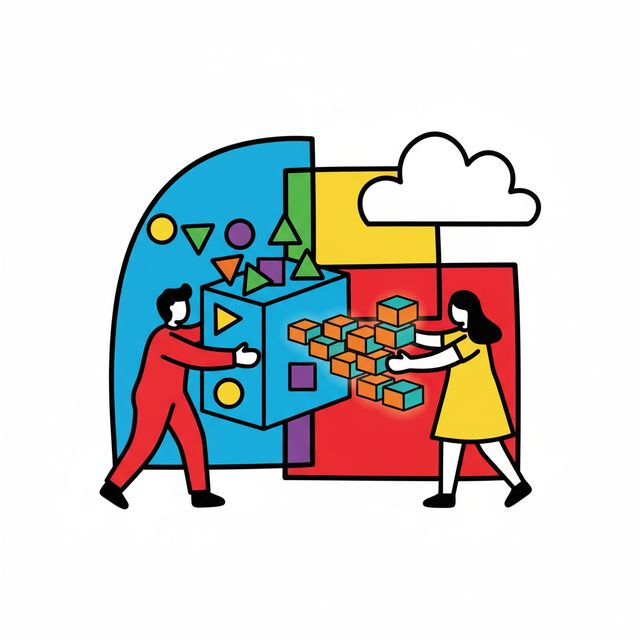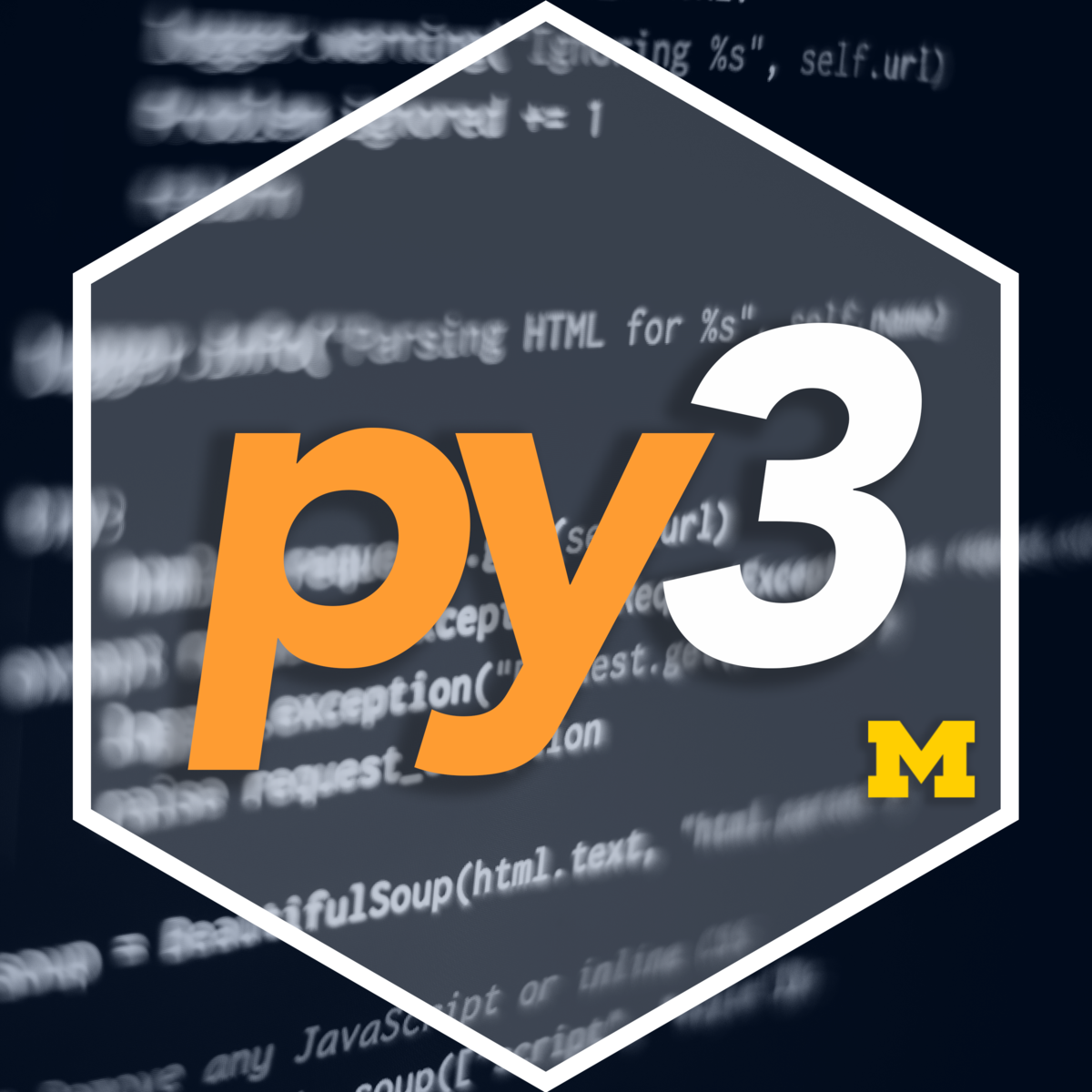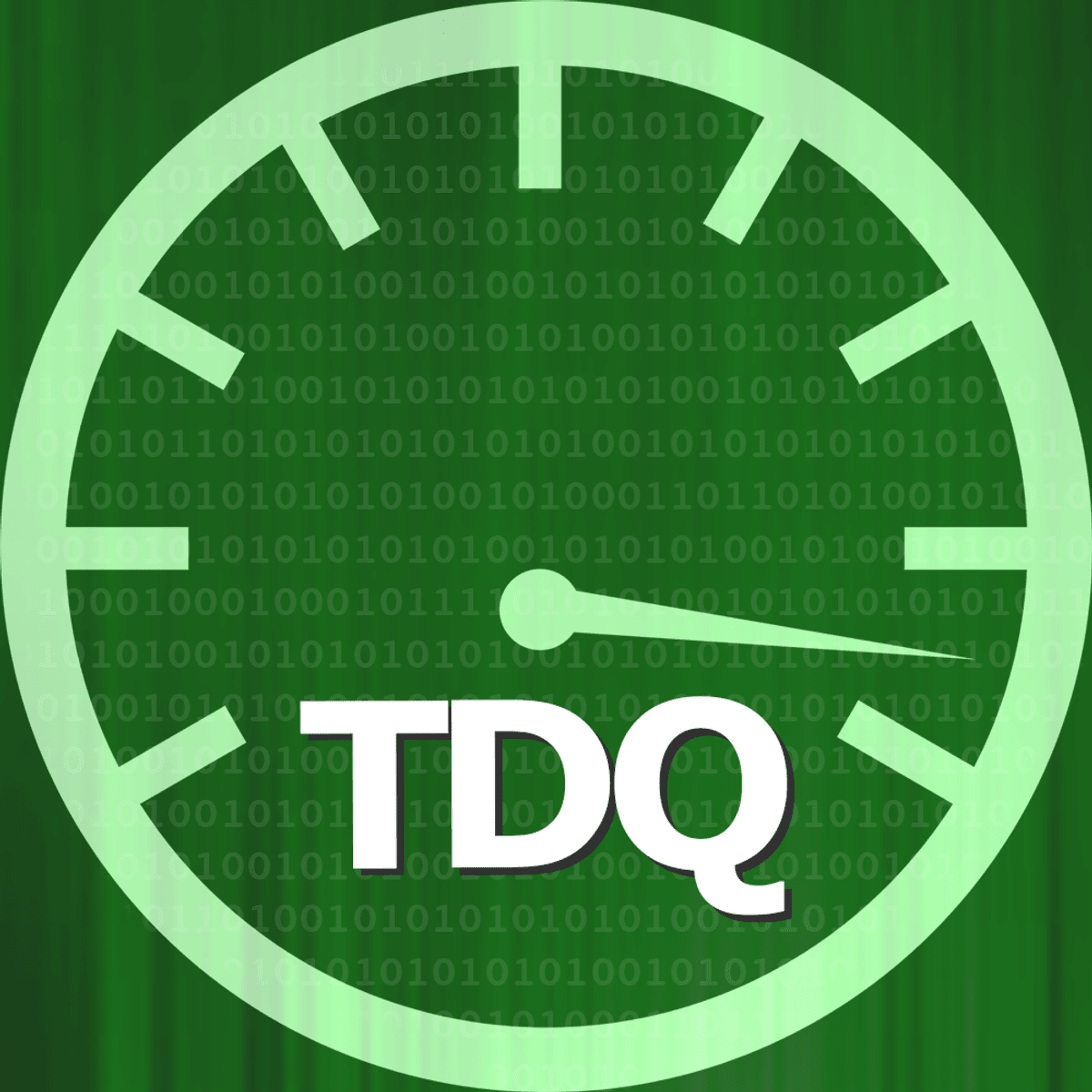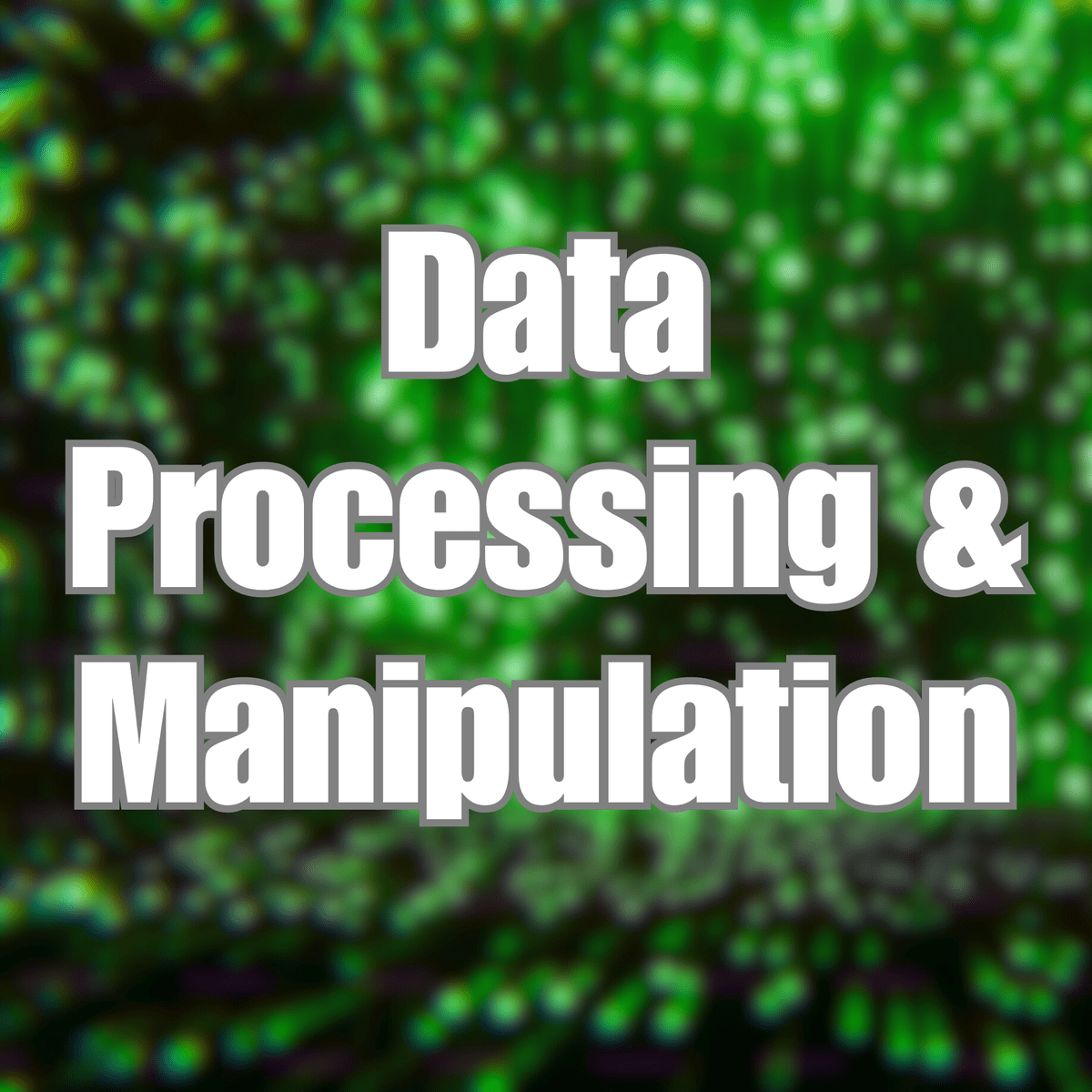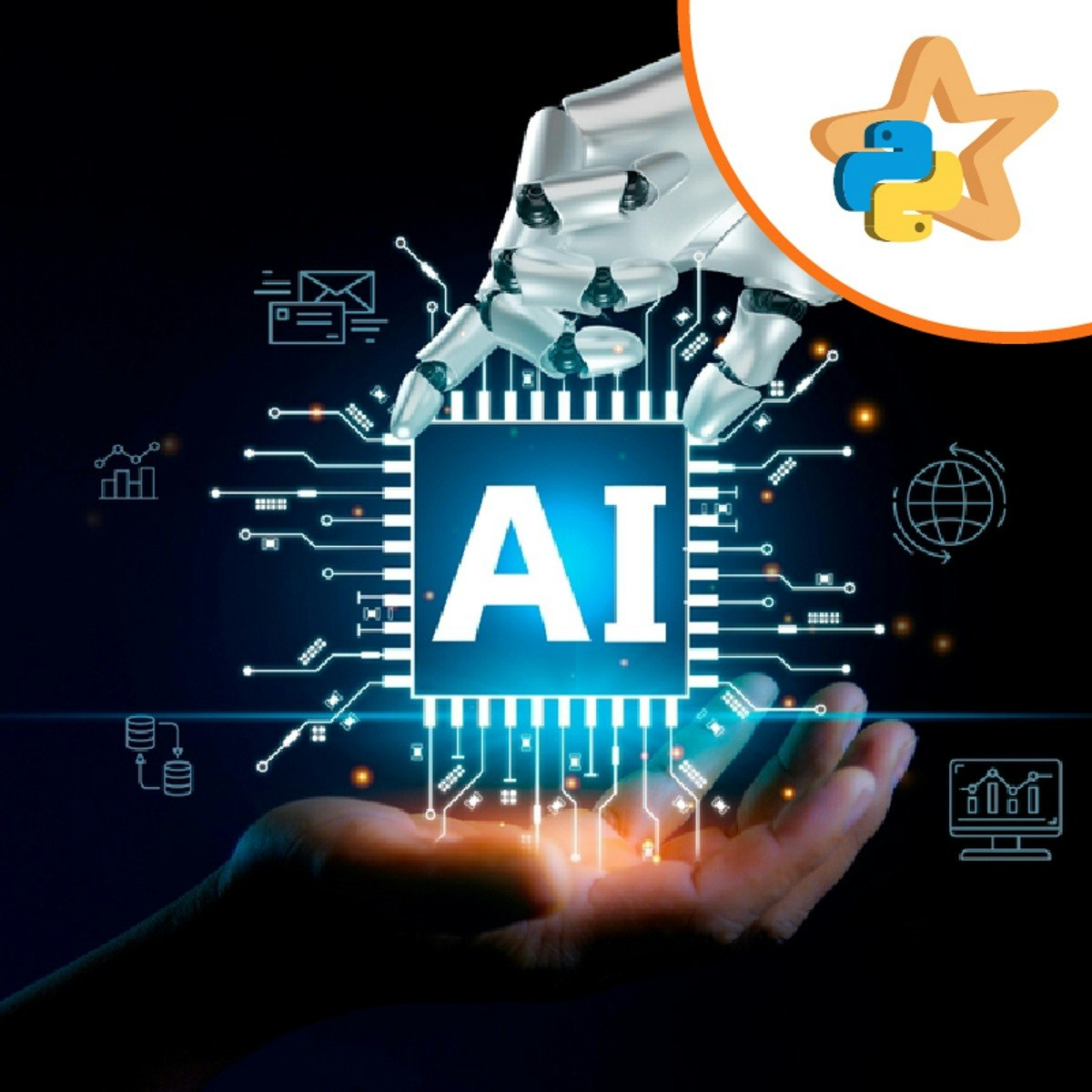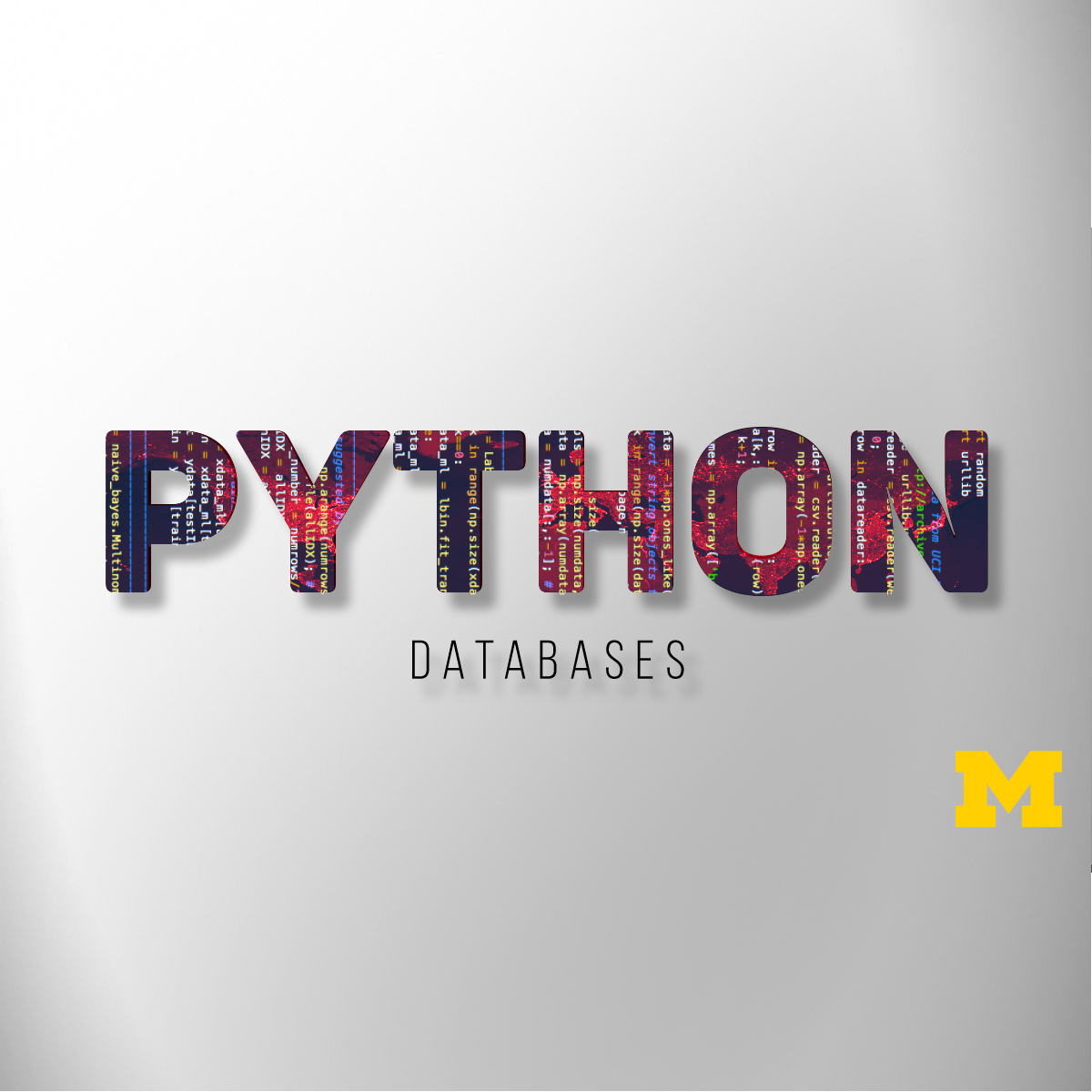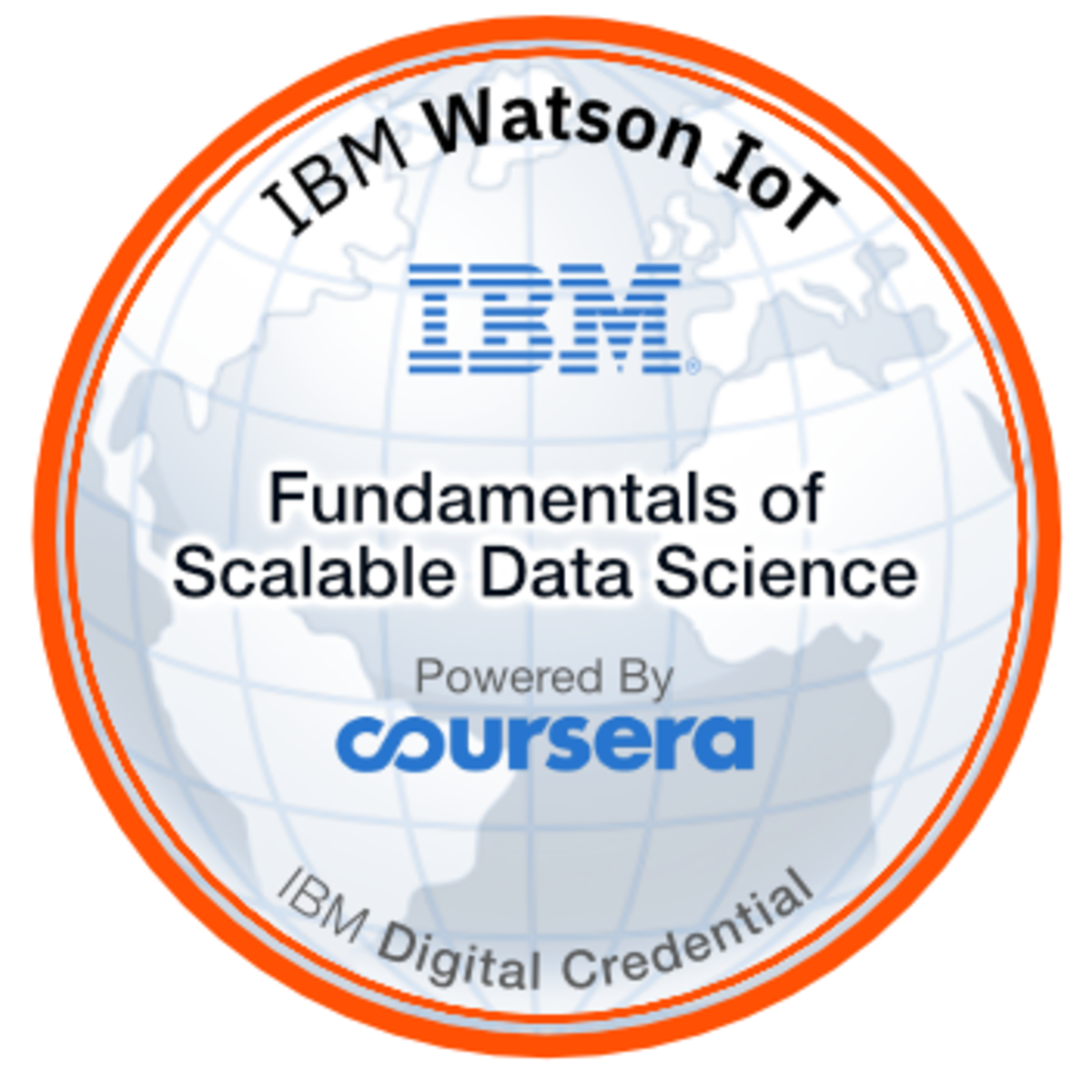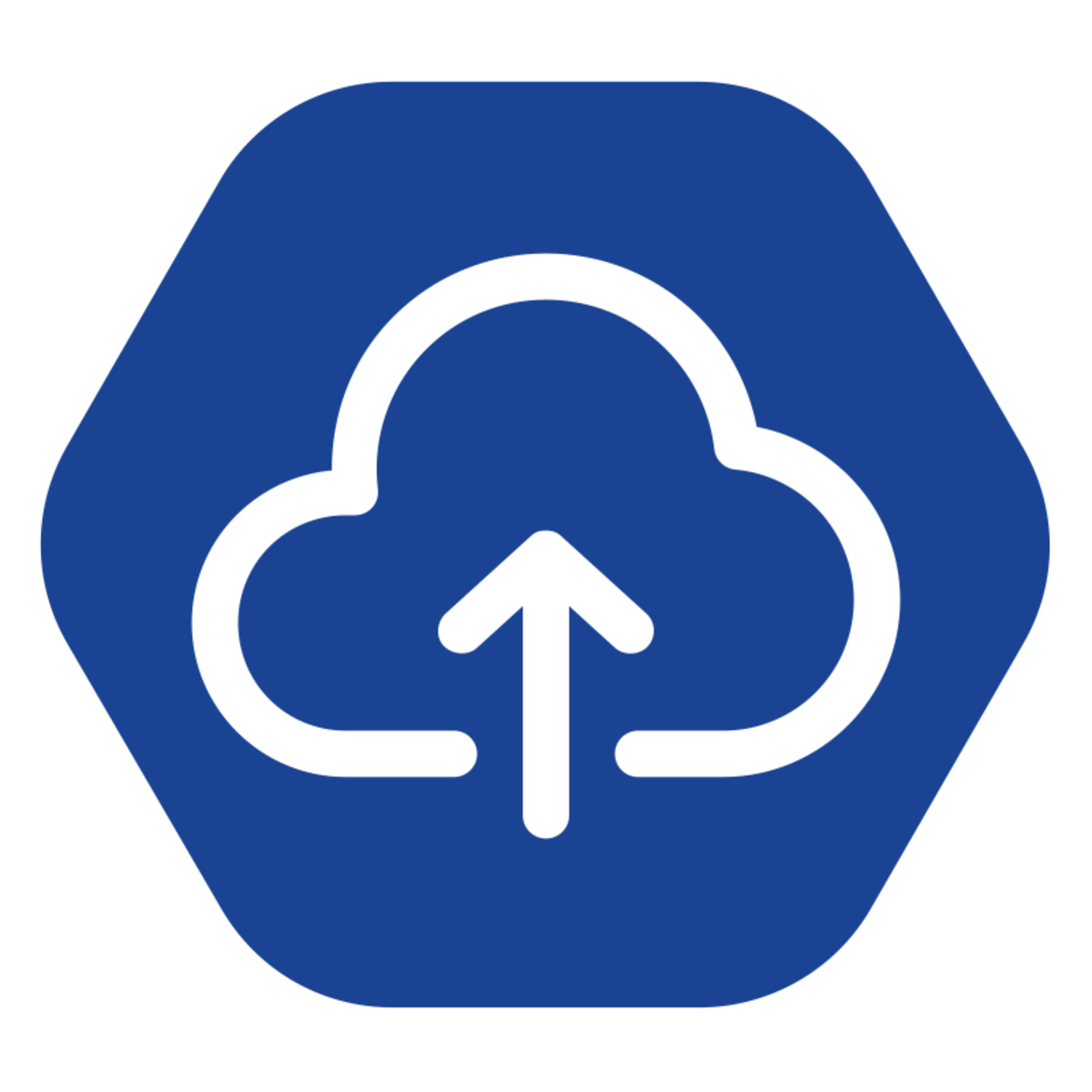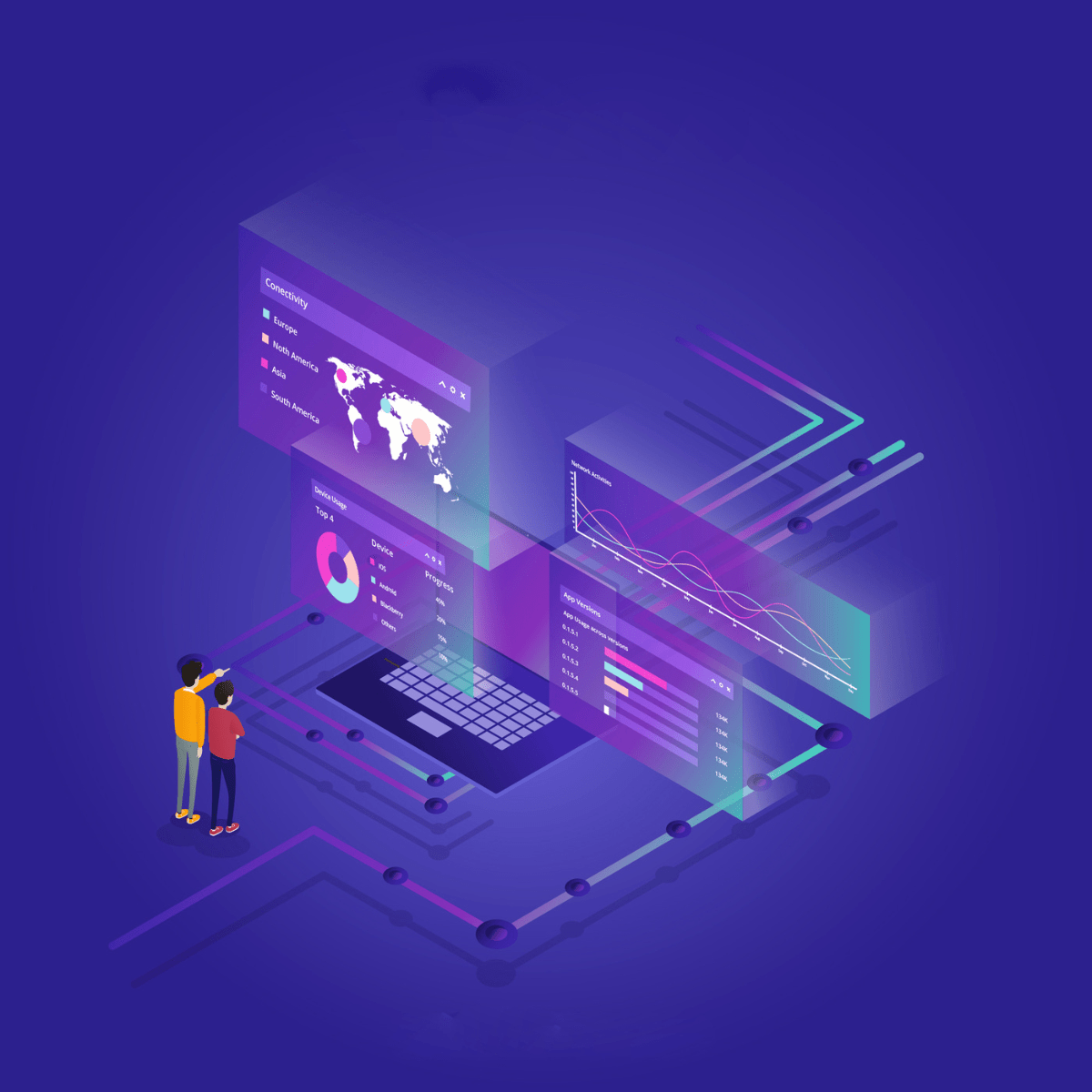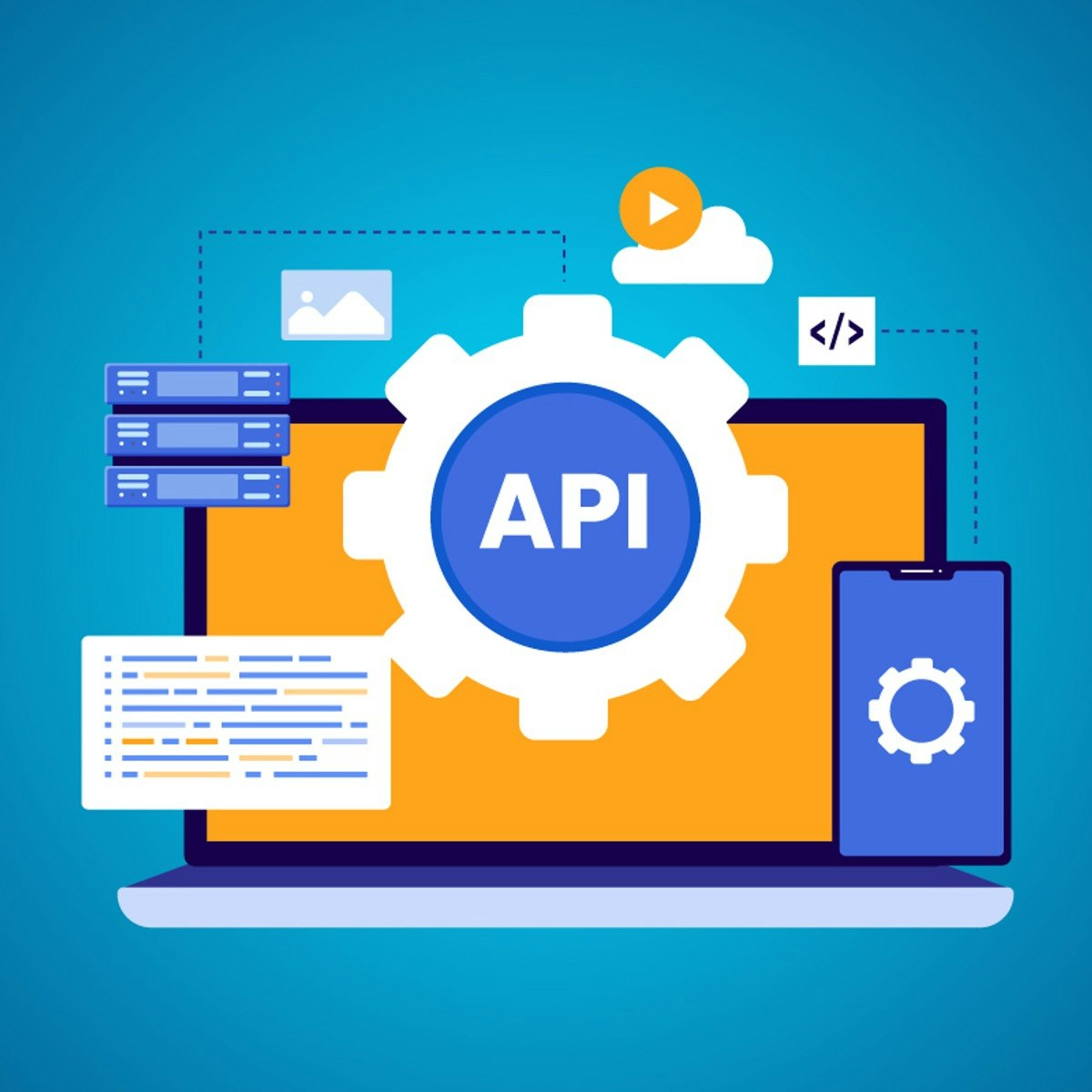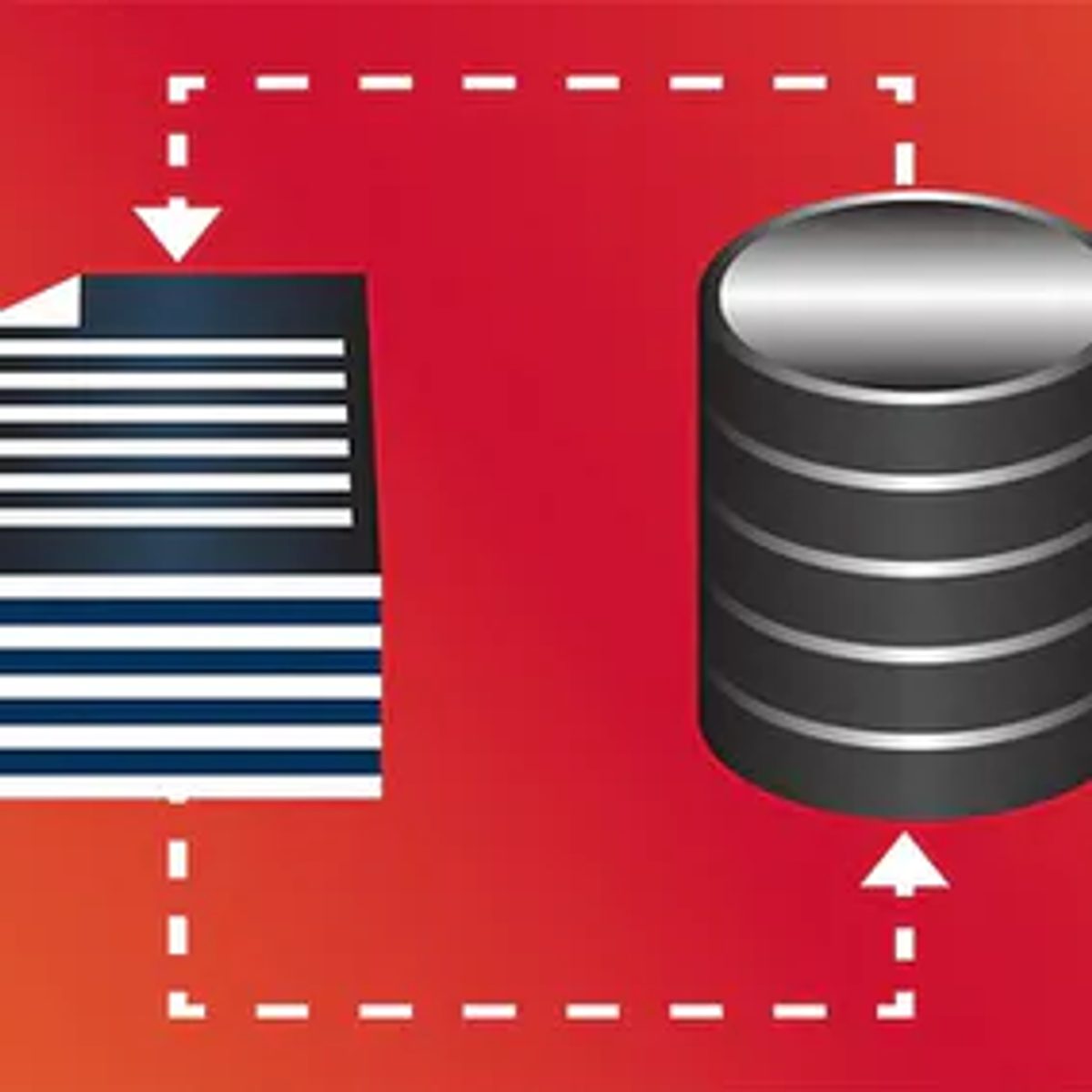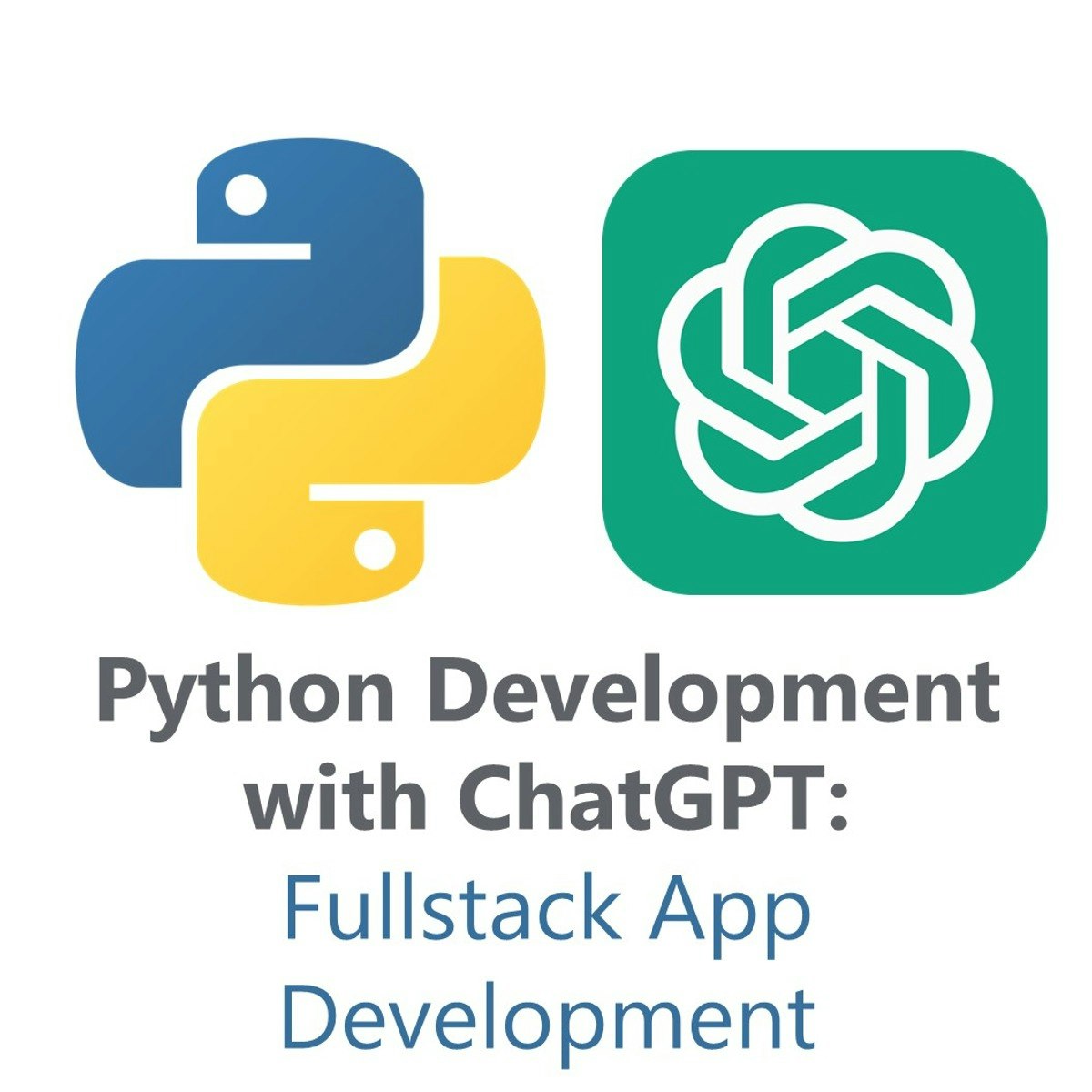Data Processing
vigating the World of Data Processing
Data processing is the fundamental activity of collecting, manipulating, and transforming raw data into meaningful and usable information. Think of it like a chef meticulously preparing ingredients to create a delicious meal; raw data, in its initial state, is often disorganized and not immediately useful. Data processing provides the structure and context necessary to turn this raw material into valuable insights that can inform decisions, drive strategies, and power innovations across countless fields. It's a systematic approach, often executed by data scientists and engineers, involving a series of steps to refine and analyze data, ultimately presenting it in an accessible format like charts, graphs, or reports.
Working in data processing can be an engaging and exciting endeavor for several reasons. Firstly, it places you at the heart of the information age, where data is a critical asset for organizations to gain a competitive edge and devise effective strategies. Secondly, the field is constantly evolving with advancements in technology, offering continuous learning opportunities and the chance to work with cutting-edge tools and techniques. Finally, the ability to extract actionable insights from complex datasets and contribute to data-driven decision-making can be incredibly rewarding, impacting various sectors from healthcare to finance.
Introduction to Data Processing
This section will lay the groundwork for understanding data processing, defining its scope, tracing its historical development, highlighting its importance in contemporary industries and research, and outlining its primary goals, such as converting raw data into actionable intelligence. We aim to make this introduction accessible even if you have no prior experience with the topic.
What Exactly is Data Processing?
At its core, data processing is the methodical collection and manipulation of data to produce meaningful information. It's a transformative process that takes raw, often jumbled, facts and figures and refines them into a structured, understandable, and usable format. This process isn't a monolithic entity; rather, it's a cycle composed of distinct stages, each with a specific purpose. The ultimate goal is to extract valuable knowledge that can be used for decision-making, strategic planning, or to support various technologies.
Imagine you have a massive pile of unsorted customer feedback forms. Each form is raw data. Data processing would involve first collecting all these forms, then preparing them by removing any irrelevant or erroneous entries. Next, this cleaned data would be input into a system, perhaps by scanning or manual entry. Then, the actual processing occurs, where the data might be categorized, analyzed for common themes, or statistically summarized. Finally, the output would be a concise report highlighting key customer sentiments and trends, which is far more useful than the initial pile of forms. This output can then be stored for future reference or even become input for another cycle of processing.
This transformation from raw data to actionable insight is crucial for businesses aiming to understand their customers better, for scientists seeking to make new discoveries, and for virtually any organization that relies on information to function effectively.
A Brief History of Data Processing
While the term "data processing" gained common usage in the 1950s with the advent of early computers, the fundamental functions of collecting and manipulating data have been performed manually for thousands of years. Ancient civilizations kept records, merchants tracked inventory, and scholars organized information. For instance, bookkeeping, with its transaction posting and generation of balance sheets, is a form of manual data processing that predates modern technology. Early methods were entirely manual, later augmented by mechanical calculators.
A significant milestone in the history of data processing was Herman Hollerith's invention of the tabulating machine using punched cards for the 1890 United States census. This marked the beginning of automatic data processing, drastically reducing the time it took to process large volumes of census data compared to purely manual methods. Hollerith's innovation is a cornerstone in the evolution of data handling and even led to the formation of a company that would eventually become IBM. The period that followed saw the development of various unit record equipment, which were collections of machines designed to store and manipulate data on punched cards. These systems formed the backbone of business data processing for many decades before electronic computers became widespread.
The arrival of electronic computers marked the era of electronic data processing (EDP), where a single computer could perform the tasks previously handled by multiple pieces of equipment. Early computers like the Colossus, used during World War II to decipher codes, demonstrated the power of electronic computation for analyzing large datasets. The invention of magnetic tape by Fritz Pfleumer in 1928 provided a new medium for data storage, paving the way for later innovations like floppy disks and hard drives. Over the decades, advancements in hardware, software, and programming languages like Fortran, C, and Java, and later Python and R, have continuously reshaped the landscape of data processing, leading to the sophisticated big data technologies and cloud-based solutions we see today.
Why Data Processing Matters Today
In today's digital world, data is generated at an unprecedented rate from countless sources like social media, online transactions, sensors, and scientific experiments. This explosion of data makes processing an indispensable activity for modern industries and research. Effectively processing this data allows organizations to unlock valuable insights, make informed decisions, optimize operations, and gain a competitive advantage. For example, in healthcare, data processing enables the analysis of patient data to improve diagnoses and treatments; in finance, it powers algorithmic trading systems and fraud detection; and in retail, it helps model customer behavior to personalize experiences and manage inventory.
Researchers across various disciplines rely on data processing to analyze experimental results, identify patterns, and make new discoveries. From climate science to genomics, the ability to process and interpret large and complex datasets is fundamental to advancing knowledge. Furthermore, data processing is the engine behind many of the technologies we use daily, from search engines and recommendation systems to artificial intelligence and machine learning applications. Without robust data processing capabilities, the raw data generated would remain largely untapped, and its potential to drive innovation and solve critical problems would go unrealized.
The shift towards cloud computing has further amplified the importance and accessibility of data processing, allowing organizations of all sizes to leverage powerful tools and infrastructure without significant upfront investment in hardware. This democratization of data processing capabilities is fueling innovation across sectors.
The Goals of Data Processing
The primary objective of data processing is to transform raw, often unstructured, data into structured, actionable information and knowledge. This overarching goal can be broken down into several key aims. One crucial objective is data validation, which involves ensuring that the collected data is accurate, complete, and relevant for the intended purpose. This step is vital for maintaining the integrity of the entire process and the reliability of the output.
Another key goal is organization and structuring. Raw data often arrives in a chaotic state. Processing aims to sort, classify, and arrange this data into a logical format that facilitates analysis. This might involve arranging items in a specific sequence or grouping them into different categories. Summarization is also a common objective, where large volumes of detailed data are condensed into concise main points or statistical summaries, making it easier to grasp key trends and patterns.
Ultimately, data processing seeks to enable analysis and interpretation. By applying various techniques, from simple calculations to complex algorithms, data processing uncovers patterns, relationships, and insights hidden within the data. The final step in achieving these goals is often reporting and presentation, where the processed information is communicated in a clear and understandable format, such as reports, charts, or dashboards, enabling stakeholders to make informed decisions. Storing this processed information securely and efficiently for future use is also a critical objective.
Core Concepts in Data Processing
This section delves into the fundamental concepts that underpin data processing. We will explore how data is gathered, the essential steps taken to clean and prepare it for analysis, the different ways processing can occur, and some of the common mathematical and computational tools employed.
Gathering the Raw Materials: Data Collection
Data collection is the foundational first step in the data processing cycle, involving the systematic gathering of raw data from diverse sources. The quality and relevance of the collected data profoundly impact the entire processing pipeline and the insights derived. Sources can range from structured databases and APIs to unstructured sources like social media feeds, customer surveys, sensor readings from IoT devices, and even physical documents. For instance, a retail company might collect transaction data from its point-of-sale systems, website interactions, and customer loyalty programs.
Several methods are employed for data collection. Surveys are a common method for gathering information directly from individuals, whether through online questionnaires, phone interviews, or in-person interactions. Sensors play a crucial role in collecting data automatically from the physical environment, such as temperature readings, GPS locations, or machine performance metrics. Application Programming Interfaces (APIs) allow systems to exchange data programmatically, enabling businesses to pull data from third-party services like weather APIs or social media platforms. Web scraping tools can also be used to extract data from websites.
It's crucial during the collection phase to ensure accuracy and minimize bias. The methods used should be well-defined and consistently applied to gather data that truly represents the phenomenon being studied or the process being analyzed. OpenCourser offers a wide array of Data Science courses that can help you understand these collection methodologies in greater depth.
These courses can help you build a foundational understanding of how data is sourced and collected for processing.
Whipping Data into Shape: Cleaning and Preprocessing
Once raw data is collected, it rarely arrives in a perfect, ready-to-analyze state. Data preparation, often called data cleaning or preprocessing, is the critical stage where raw data is meticulously sorted, filtered, and refined to remove inaccuracies, inconsistencies, and irrelevant information. This step is paramount because the quality of the input data directly dictates the quality of the output and the reliability of any insights generated. Think of it as a chef carefully washing, trimming, and chopping ingredients before cooking; it’s essential for a good final dish.
Common tasks in data cleaning and preprocessing include handling missing values, which might involve imputing (filling in) values based on statistical methods or removing records with too much missing information. Outlier detection and treatment address data points that are significantly different from other observations and could skew analysis. Data type conversion ensures that data is in the correct format for processing (e.g., converting text representations of numbers into numerical types). Removing duplicates and correcting structural errors are also vital. For example, if customer addresses are entered inconsistently, preprocessing might involve standardizing them to a common format.
Techniques like data validation, where data is checked against predefined rules or constraints, help ensure accuracy. Data transformation might also occur, such as normalizing data to a common scale or encoding categorical variables into numerical representations suitable for machine learning algorithms. The goal is to produce a clean, consistent, and high-quality dataset that can be reliably fed into the subsequent processing stages.
If you're interested in learning the practical skills for cleaning and preparing data, these courses offer valuable insights and techniques.
This book provides a comprehensive overview of data preparation for analysis.
Different Flavors of Processing: Batch, Real-Time, and Distributed
Data processing isn't a one-size-fits-all operation; different scenarios call for different approaches. Three primary types of data processing are batch processing, real-time processing, and distributed processing.
Batch processing involves collecting and processing data in groups or "batches" over a period. This method is suitable for large volumes of data where immediate results are not critical, and tasks are often repetitive. Think of payroll systems that process employee salaries at the end of each month or utility companies generating monthly bills. Batch processing is generally cost-effective but introduces latency, as processing occurs at scheduled intervals.
Real-time processing, in contrast, involves processing data 일으킨다 as it is received, providing immediate or near-immediate output. This is crucial for time-sensitive applications where quick decision-making is essential. Examples include fraud detection systems that analyze transactions as they happen, stock market trading platforms updating prices instantly, or GPS systems providing real-time traffic updates. While offering speed, real-time systems can be more complex and expensive to implement and maintain.
Distributed processing involves breaking down large datasets or complex processing tasks and distributing them across multiple computers or servers, which may be geographically separated. This approach enhances processing power and efficiency, particularly for big data applications. Technologies like Apache Hadoop and Apache Spark are common examples of distributed processing frameworks. It allows for parallel processing, significantly speeding up computations that would be too slow or impossible on a single machine.
Other processing types include online processing, where data is processed as it's entered, often by users interacting with a system (e.g., an ATM transaction), and multiprocessing, which uses multiple CPUs within a single system to perform tasks concurrently. Understanding these different modes helps in choosing the right approach based on data volume, velocity, variety, and the required speed of insight generation. You can explore various IT & Networking courses on OpenCourser to learn more about these systems.
To understand how data is processed at scale, these courses are highly recommended.
The Analyst's Toolkit: Common Algorithms and Statistical Models
At the heart of data processing, especially in the analysis stage, lie various algorithms and statistical models that transform cleaned data into meaningful insights. These tools are the "recipes" that data scientists and analysts use to uncover patterns, make predictions, and understand complex relationships within the data. The choice of algorithm or model depends heavily on the nature of the data and the specific questions being addressed.
Statistical models form a cornerstone of data analysis. These range from basic descriptive statistics (like mean, median, mode, and standard deviation), which summarize data characteristics, to more advanced inferential statistics, which allow us to draw conclusions about a larger population based on a sample. Techniques like regression analysis help in understanding the relationship between variables (e.g., how advertising spend affects sales). Hypothesis testing is used to validate assumptions about data. For those new to these concepts, exploring Mathematics courses can provide a solid foundation.
Machine learning algorithms have become increasingly prominent in data processing. These algorithms enable computers to learn from data without being explicitly programmed for each specific task. They can be broadly categorized:
- Supervised learning algorithms are trained on labeled data (where the desired output is known) to make predictions or classifications. Examples include linear regression for predicting continuous values and logistic regression or decision trees for classification tasks (e.g., identifying spam emails).
- Unsupervised learning algorithms work with unlabeled data to discover hidden patterns or structures. Clustering algorithms (like k-means) group similar data points together, while dimensionality reduction techniques (like Principal Component Analysis - PCA) reduce the number of variables while preserving important information.
- Reinforcement learning involves training agents to make sequences of decisions by rewarding them for good actions and penalizing them for bad ones, often used in robotics or game playing.
Other common algorithms include sorting algorithms for organizing data, search algorithms for finding specific information, and graph algorithms for analyzing network data. The effective application of these tools requires not only understanding how they work but also the context of the data and the ethical implications of their use.
These courses provide a good introduction to the algorithms and models used in data processing.
For a deeper dive into machine learning, these books are excellent resources.
Formal Education Pathways
For individuals aspiring to build a career in data processing, a structured educational foundation can be highly beneficial. This section outlines typical academic routes, including relevant degrees, essential coursework, research avenues, and the role of certifications and specialized training programs. This information is particularly relevant for high school and university students considering their options, as well as for those planning a career change into this dynamic field.
Degrees Paving the Way: Relevant Academic Programs
A strong academic background is often a significant asset for those looking to enter and advance in the field of data processing. Several undergraduate and graduate degrees provide the necessary knowledge and skills. A Bachelor's degree in Computer Science is a very common and direct pathway, offering comprehensive training in programming, algorithms, data structures, and database management, all of which are crucial for data processing. You can find a variety of Computer Science courses on OpenCourser to explore this field.
Another highly relevant field is Statistics or Mathematics. Degrees in these disciplines equip students with a deep understanding of statistical modeling, probability, data analysis techniques, and mathematical optimization, which are essential for interpreting data and building predictive models. Related fields like Data Science and Business Analytics are also increasingly popular, offering specialized curricula that blend computer science, statistics, and domain-specific knowledge to tackle data challenges.
For those interested in more specialized areas, degrees in Information Systems, Software Engineering, or even domain-specific fields with a strong quantitative component (like economics, bioinformatics, or operations research) can provide a solid foundation. At the graduate level, Master's degrees or PhDs in these areas, particularly in Data Science, Machine Learning, or Artificial Intelligence, can open doors to more advanced research and leadership roles. The choice of degree often depends on the specific area of data processing one wishes to focus on, whether it's data engineering, data analysis, data science, or a more specialized application.
Building Blocks of Knowledge: Core Coursework
Regardless of the specific degree pursued, certain core coursework areas are fundamental for anyone aspiring to work in data processing. A strong understanding of database systems is essential. Courses in this area typically cover database design (e.g., relational databases, NoSQL databases), data modeling, query languages like SQL, and database administration. This knowledge is critical for managing, storing, and retrieving the vast amounts of data that organizations handle.
Programming skills are indispensable. Proficiency in languages commonly used in data science and processing, such as Python and R, is highly sought after. Coursework should cover not just the syntax of these languages but also data structures, algorithms, software development principles, and libraries specific to data manipulation and analysis (e.g., Pandas, NumPy, Scikit-learn in Python).
Foundational courses in statistics and probability are crucial for understanding data distributions, hypothesis testing, regression analysis, and other analytical techniques. As machine learning becomes increasingly integral to data processing, courses in machine learning itself are vital. These cover supervised and unsupervised learning algorithms, model evaluation, and feature engineering. Finally, given the societal impact of data, coursework in data ethics is becoming increasingly important, covering topics like privacy, bias, and responsible data use.
These courses offer a solid grounding in some of the core areas mentioned.
Exploring New Frontiers: Research Opportunities in Academia
For those with a deep interest in pushing the boundaries of data processing, academia offers a wealth of research opportunities. Universities and research institutions are at the forefront of developing new algorithms, models, and technologies for handling and interpreting increasingly complex and voluminous data. Engaging in research can provide invaluable experience, contribute to the advancement of the field, and open doors to specialized careers.
Research areas in data processing are vast and interdisciplinary. They include the development of more efficient big data processing frameworks, exploring novel machine learning and artificial intelligence techniques for data analysis and pattern recognition, and advancing data visualization methods to better communicate insights. There is also significant research in data privacy and security, focusing on techniques like differential privacy, homomorphic encryption, and secure multi-party computation to protect sensitive information while still enabling analysis.
Other active research areas include natural language processing (NLP) for extracting insights from text and speech, computer vision for analyzing image and video data, and the application of data processing techniques to specific domains like bioinformatics, climate science, astrophysics, and social sciences. Many universities offer opportunities for undergraduate and graduate students to participate in research projects, work alongside faculty members, and even publish their findings. These experiences are not only intellectually stimulating but also highly valued by employers seeking candidates with deep analytical and problem-solving skills.
For those inclined towards research, consider exploring advanced courses and specializations.
This book delves into advanced topics relevant to data processing research.
Beyond Degrees: Certifications and Specialized Training
While formal degrees provide a strong foundation, certifications and specialized training programs offer valuable avenues for acquiring specific, in-demand skills in data processing and demonstrating proficiency to potential employers. These are particularly useful for individuals looking to pivot into the field, upskill in a particular technology, or specialize in a niche area.
Numerous technology vendors and industry organizations offer certifications related to data processing tools and platforms. For instance, certifications in cloud platforms like Amazon Web Services (AWS), Microsoft Azure, or Google Cloud Platform (GCP) are highly regarded, as these platforms are extensively used for data storage, processing, and analytics. Certifications focused on specific database technologies (e.g., Oracle, SQL Server), big data technologies (e.g., Cloudera for Hadoop, Databricks for Spark), or business intelligence tools (e.g., Tableau, Power BI) can also enhance a professional's profile.
Specialized training programs, often offered online or through bootcamps, can provide intensive, hands-on learning experiences in areas like data science, machine learning engineering, data analytics, or cybersecurity. These programs are typically shorter than degree programs and focus on job-ready skills. When choosing certifications or training programs, it's important to consider their industry recognition, the relevance of the curriculum to your career goals, and the opportunities for practical application of learned skills. OpenCourser lists many such specialized courses that can lead to certifications, for example, in the Professional Development category.
These courses can help you prepare for industry-recognized certifications or gain specialized skills.
Self-Directed and Online Learning
The rise of online learning platforms has democratized access to high-quality education, making it easier than ever for individuals to acquire data processing skills at their own pace. This section is tailored for career changers, lifelong learners, and professionals looking to upskill, highlighting how online resources can be effectively utilized for building foundational knowledge, developing practical experience, and navigating the learning journey.
OpenCourser is an excellent resource for finding these learning opportunities, allowing you to easily browse through thousands of courses from various providers. You can compare syllabi, read summarized reviews, and even save courses to a list to plan your learning path. For those looking to maximize their budget, checking the OpenCourser deals page can uncover timely offers on courses and learning materials.
Laying the Groundwork: Foundational Skills via Online Courses
Online courses offer an incredibly flexible and accessible way to build the foundational skills necessary for a career in data processing. For those new to the field or looking to solidify their understanding, modular courses allow learners to start with the basics and progressively tackle more complex topics. Platforms like Coursera, edX, and Udemy host a vast array of courses covering fundamental concepts in programming (especially Python and SQL), statistics, database management, and data analysis principles. These are the essential building blocks upon which more advanced data processing skills are built.
Many introductory online courses are designed for beginners with no prior experience, making them ideal for individuals transitioning from other fields. They often break down complex subjects into digestible modules, incorporating video lectures, readings, quizzes, and assignments to reinforce learning. Look for courses that emphasize not just theoretical understanding but also practical application. For example, a good introductory Python course for data processing would not only teach the language syntax but also how to use libraries like Pandas for data manipulation. OpenCourser's search functionality can help you find courses tailored to specific foundational skills, such as "Introduction to SQL" or "Python for Data Analysis."
The beauty of online learning is the ability to learn at your own pace and revisit materials as needed. This self-directed approach can be highly effective, especially when combined with a clear learning plan. Consider starting with a broad overview course to understand the entire data processing landscape, then dive deeper into specific areas of interest or identified skill gaps.
These online courses are excellent starting points for building foundational data processing skills.
For those looking for introductory books, these can be very helpful.
From Theory to Practice: Project-Based Learning and Portfolios
While foundational knowledge is crucial, employers in the data processing field highly value practical skills and demonstrable experience. Project-based learning is an excellent way to bridge the gap between theory and practice. Many online courses incorporate hands-on projects, allowing learners to apply the concepts they've learned to real-world or simulated datasets. These projects can range from cleaning and analyzing a small dataset to building a simple machine learning model or creating a data visualization dashboard.
Beyond course-specific projects, actively seeking out independent projects is highly recommended. Platforms like Kaggle offer datasets and competitions that provide excellent opportunities to practice data processing skills. You could also find public datasets related to your interests (e.g., sports statistics, public health data, financial markets) and undertake your own analysis. Documenting these projects, including the problem statement, data sources, methodologies used, code, and findings, is essential for building a strong portfolio.
A well-curated portfolio is a powerful tool in a job search, showcasing your abilities to potential employers more effectively than a resume alone. It provides tangible evidence of your skills in data collection, cleaning, processing, analysis, and visualization. Include a variety of projects that demonstrate different skills and tools. Platforms like GitHub are commonly used to host code and project documentation. OpenCourser's Learner's Guide offers articles on how to structure your learning and build a compelling portfolio.
Consider these project-based courses to gain hands-on experience.
Navigating the Journey: Self-Study, Mentorship, and Networking
Self-directed learning requires discipline, motivation, and a strategic approach. While online courses provide structure, supplementing them with other resources can enhance the learning experience. This might include reading industry blogs, following thought leaders on social media, or joining online communities and forums related to data processing, data science, or specific technologies. These platforms offer opportunities to ask questions, learn from others' experiences, and stay updated on the latest trends.
Finding a mentor can be invaluable, especially for those new to the field or making a career transition. A mentor can provide guidance on learning paths, offer career advice, help troubleshoot challenging problems, and provide encouragement. Mentors can be found through professional networks, online communities, or formal mentorship programs. Even informal connections with more experienced individuals in the field can be beneficial.
Networking, both online and offline (where possible), is also crucial. Attending virtual meetups, webinars, or industry conferences can help you connect with peers, learn about job opportunities, and gain insights into how data processing is applied in different industries. Building a professional network takes time and effort but can significantly aid your learning journey and career progression. Remember, learning is often a collaborative process, even when self-directed.
Engaging with the broader data community can be very helpful. These books offer insights from experienced practitioners.
Choosing Wisely: Assessing Course Quality and Relevance
With the sheer volume of online courses available, selecting the right ones can be challenging. It's important to assess the quality and relevance of a course before investing your time and potentially money. Start by clearly defining your learning objectives. What specific skills do you want to acquire? How does this course fit into your overall career goals?
When evaluating a course, look at the instructor's credentials and experience. Are they recognized experts in the field? Read reviews and testimonials from past learners, paying attention to comments about course content, teaching style, and the practicality of the knowledge gained. Examine the course syllabus in detail. Does it cover the topics you need in sufficient depth? Does it include hands-on projects or assignments? OpenCourser provides many of these details, including summaries, instructor information, and sometimes even syllabi and reviews, to help you make an informed decision. The "Traffic Lights" feature on OpenCourser course pages can also highlight potential strengths and weaknesses at a glance.
Consider the platform offering the course and its reputation. Is the course part of a larger specialization or professional certificate that might add more value? Also, check if the course content is up-to-date, as the field of data processing evolves rapidly. Finally, assess whether the course aligns with industry demands by looking at job descriptions for roles you're interested in and seeing if the skills taught are frequently mentioned. Making thoughtful choices about your online learning resources will ensure you're building a strong and relevant skillset.
These courses are well-regarded and cover relevant topics in data processing.
Career Progression and Opportunities
The field of data processing offers a diverse range of career opportunities with significant potential for growth. As organizations increasingly rely on data to drive decisions, the demand for skilled professionals who can collect, manage, analyze, and interpret data continues to rise. This section explores typical career paths, from entry-level positions to leadership roles, and touches on the growing trend of freelancing and consultancy in this domain. Understanding these trajectories can help students, career changers, and even recruiters navigate the landscape of data processing careers.
Starting the Journey: Entry-Level Roles
For individuals beginning their careers in data processing, several entry-level roles provide a great starting point to gain experience and build foundational skills. A common entry point is the role of a Data Technician or Data Entry Clerk. These positions typically involve inputting data into systems, ensuring data accuracy, and performing basic data cleaning tasks. While these roles might be more focused on the initial stages of the data lifecycle, they offer valuable exposure to data handling processes and database systems.
Another common entry-level position is a Junior Data Analyst or simply Data Analyst. In this role, individuals are often responsible for collecting and cleaning data, performing exploratory data analysis, generating reports, and creating visualizations to communicate findings. They might work with tools like Excel, SQL, and business intelligence platforms like Tableau or Power BI. These roles require a good understanding of statistical concepts and data manipulation techniques. Some organizations may also have roles like Data Processing Specialist or Report Writer.
To succeed in these entry-level positions, a solid educational foundation in a relevant field (like computer science, statistics, or information systems) is often beneficial, coupled with practical skills in data handling tools and programming languages. Internships and project work can significantly enhance a candidate's profile. For those just starting, developing strong attention to detail, problem-solving abilities, and communication skills is crucial. Many entry-level roles can be found across various industries, including finance, healthcare, retail, and technology.
These courses can help build the skills needed for entry-level data processing roles.
Climbing the Ladder: Mid-Career Paths
As professionals gain experience and expertise in entry-level roles, various mid-career paths open up in the field of data processing. These roles typically involve more responsibility, complex problem-solving, and often a degree of specialization. One common progression is to a Data Engineer role. Data engineers are responsible for designing, building, and maintaining the infrastructure and pipelines that allow for the efficient collection, storage, and processing of large volumes of data. They work with big data technologies like Hadoop and Spark, cloud platforms, and ETL (Extract, Transform, Load) processes.
Another mid-career path is that of a Data Scientist. Data scientists use advanced statistical and machine learning techniques to analyze complex datasets, build predictive models, and extract actionable insights. This role often requires a deeper understanding of algorithms, statistical modeling, and programming languages like Python or R. They work on diverse problems, from developing recommendation engines to predicting customer churn or optimizing business processes. You can explore Data Science topics and courses further on OpenCourser.
Individuals with a strong focus on database management might progress to roles like Database Administrator (DBA) or Data Architect. DBAs are responsible for the performance, security, and availability of databases, while data architects design the overall structure and blueprint of an organization's data systems. Other mid-career roles include Business Intelligence (BI) Analyst or Developer, who focus on creating dashboards and reports to help businesses make data-driven decisions, or more specialized roles like Machine Learning Engineer, who focus specifically on deploying and scaling machine learning models.
These courses are geared towards professionals looking to advance into mid-career data roles.
These books are valuable for professionals aiming for mid-career data processing roles.
Reaching the Top: Leadership Positions
With significant experience and a proven track record, professionals in data processing can aspire to various leadership positions. These roles involve not only deep technical expertise but also strong strategic thinking, people management, and communication skills. A prominent leadership role is that of a Data Processing Manager or Analytics Manager. These managers oversee teams of data analysts, engineers, or scientists, set project priorities, manage budgets, and ensure that the team's work aligns with the organization's strategic goals. They play a key role in fostering a data-driven culture within the organization.
At a more senior level, positions like Director of Data Science, Director of Data Engineering, or Head of Analytics become available. These leaders are responsible for the overall data strategy of a department or the entire organization. They work closely with executive leadership to identify opportunities where data can create business value and drive innovation. They are also responsible for building and mentoring high-performing data teams and staying abreast of emerging technologies and trends in the field.
In some organizations, particularly larger ones, the role of Chief Data Officer (CDO) or Chief Analytics Officer (CAO) exists at the executive level. The CDO is responsible for the organization-wide governance and utilization of information as an asset, via data processing, analysis, data mining, information trading, and other means. This role involves setting the vision for data management and analytics, ensuring data quality and security, promoting data literacy across the organization, and leveraging data to achieve strategic business objectives. These leadership positions require a blend of technical acumen, business understanding, and exceptional leadership qualities. According to ZipRecruiter, data processing managers can earn an average salary of around $97,145, with ranges varying based on specific duties and experience.
The Independent Route: Freelancing and Consultancy
Beyond traditional employment, the data processing field offers ample opportunities for freelancing and consultancy. Many organizations, particularly small and medium-sized enterprises (SMEs) or those with specific, short-term project needs, seek external expertise for their data processing challenges. Freelancers and consultants can offer specialized skills in areas like data analysis, data visualization, database development, machine learning model development, or data strategy consulting.
The rise of remote work and online freelancing platforms has made it easier for data processing professionals to connect with clients globally. Freelancing can offer greater flexibility, autonomy, and the opportunity to work on a diverse range of projects across different industries. However, it also requires strong self-management skills, business development acumen to find clients, and the ability to manage contracts and finances.
Consultancy roles can range from individual practitioners to working for boutique data consultancies or larger management consulting firms with data and analytics practices. Consultants often work on high-impact projects, helping organizations solve complex business problems using data, develop data strategies, or implement new data technologies. This path requires excellent problem-solving, communication, and client management skills, in addition to deep technical expertise. For experienced professionals, freelancing or consulting can be a rewarding career path that leverages their accumulated knowledge and skills in a flexible and impactful way. FlexJobs is one platform where individuals can find freelance, flexible, or remote data processing jobs.
Ethical and Legal Considerations
As data becomes increasingly central to our lives and economies, the ethical and legal implications of its processing are paramount. This section addresses critical considerations such as data privacy laws, the challenge of mitigating bias in automated systems, the environmental footprint of large-scale data operations, and the importance of transparency and accountability frameworks. These issues are vital for academic researchers, industry practitioners, and policymakers alike, as they shape responsible data practices.
Guarding Secrets: Data Privacy Laws (GDPR, CCPA)
Data privacy has emerged as a fundamental human right and a critical concern in the digital age. Numerous laws and regulations have been enacted worldwide to govern how organizations collect, process, store, and share personal data. Among the most prominent are the General Data Protection Regulation (GDPR) in the European Union and the California Consumer Privacy Act (CCPA) in the United States. These regulations aim to give individuals greater control over their personal information and impose significant obligations on organizations that handle such data.
Key principles underpinning these laws include:
- Lawfulness, Fairness, and Transparency: Data processing must have a lawful basis, be fair to individuals, and organizations must be transparent about their data practices.
- Purpose Limitation: Data should be collected for specified, explicit, and legitimate purposes and not further processed in a manner incompatible with those purposes.
- Data Minimization: Organizations should only collect and retain data that is adequate, relevant, and limited to what is necessary for the stated purposes.
- Accuracy: Personal data must be accurate and, where necessary, kept up to date.
- Storage Limitation: Data should be kept in a form that permits identification of data subjects for no longer than is necessary for the purposes for which the personal data are processed.
- Integrity and Confidentiality (Security): Personal data must be processed in a manner that ensures appropriate security, including protection against unauthorized or unlawful processing and against accidental loss, destruction, or damage.
- Accountability: Data controllers are responsible for, and must be able to demonstrate, compliance with these principles.
Failure to comply with these regulations can result in substantial fines, reputational damage, and loss of customer trust. Therefore, understanding and implementing robust data privacy practices is not just a legal requirement but also an ethical imperative for any organization involved in data processing.
This course provides an overview of data protection in the digital age.
Fairness in Algorithms: Bias Mitigation in Automated Systems
As automated systems, particularly those driven by artificial intelligence (AI) and machine learning (ML), play an increasingly significant role in decision-making processes across various sectors (e.g., loan applications, hiring, criminal justice, healthcare), the issue of bias in these systems has become a critical ethical concern. Algorithmic bias can arise from various sources, including biased training data, flawed algorithm design, or the way models are deployed and interpreted. If not addressed, such biases can perpetuate and even amplify existing societal inequalities, leading to unfair or discriminatory outcomes for certain individuals or groups.
Mitigating bias in automated systems is a complex challenge that requires a multi-faceted approach. It begins with ensuring that the data used to train AI/ML models is representative and diverse, and that potential biases within the data are identified and addressed. This might involve techniques for data augmentation, re-weighting, or collecting more inclusive datasets. During model development, it's crucial to select algorithms and features carefully, considering their potential for disparate impact.
Furthermore, organizations need to implement fairness metrics and regular audits to assess the performance of their models across different demographic groups and identify any discriminatory patterns. Transparency in how models make decisions (explainable AI) can also help in uncovering and addressing biases. Developing ethical guidelines and governance frameworks for AI development and deployment is essential, as is fostering diversity within AI development teams to bring a wider range of perspectives to the table. The goal is to create systems that are not only accurate and efficient but also fair and equitable.
The Hidden Costs: Environmental Impact of Large-Scale Processing
The explosion in data generation and the increasing reliance on complex computational processes have led to a significant and often overlooked environmental impact. Large-scale data centers, which house the servers and infrastructure necessary for data storage and processing, consume vast amounts of electricity, not only to power the servers themselves but also for cooling systems to prevent overheating. This energy consumption contributes to greenhouse gas emissions, particularly if the energy sources are fossil fuel-based.
The manufacturing of hardware components, including servers, storage devices, and networking equipment, also has an environmental footprint, involving the extraction of raw materials, energy-intensive production processes, and the generation of electronic waste (e-waste) at the end of their lifecycle. As the demand for data processing continues to grow, driven by trends like big data analytics, cloud computing, and the proliferation of AI applications, so too does the potential environmental burden.
Addressing this challenge requires a concerted effort from the tech industry and data processing practitioners. This includes designing more energy-efficient data centers and hardware, investing in renewable energy sources to power data operations, developing algorithms and processing techniques that are computationally less intensive, and promoting practices for responsible e-waste management and recycling. Raising awareness about the environmental impact of data processing is the first step towards fostering more sustainable practices in the field.
Clarity and Responsibility: Transparency and Accountability Frameworks
In the realm of data processing, especially when dealing with sensitive personal information or making decisions that significantly impact individuals, transparency and accountability are fundamental ethical principles. Transparency means that individuals should have clear and accessible information about what data is being collected about them, how it is being processed, for what purposes, and who has access to it. This empowers individuals to make informed decisions about their data and understand the potential implications of its use.
Accountability means that organizations and individuals responsible for data processing systems must be answerable for their actions and the outcomes of those systems. This includes taking responsibility for any errors, biases, or harms caused by the data processing activities. Establishing clear lines of responsibility within an organization for data governance, privacy, and ethical oversight is crucial. This often involves creating roles like Data Protection Officers (DPOs) or ethics committees.
Frameworks that promote transparency and accountability include conducting regular data protection impact assessments (DPIAs) to identify and mitigate risks, implementing robust data governance policies and procedures, providing mechanisms for individuals to access their data and request corrections or deletions (data subject rights), and establishing clear channels for redress or complaints. For automated decision-making systems, transparency might involve providing explanations for how decisions are reached (explainable AI). Ultimately, fostering a culture of ethical responsibility throughout the data lifecycle is key to building trust and ensuring that data processing serves humanity in a just and beneficial way.
Industry Applications and Case Studies
Data processing is not an abstract concept confined to textbooks; it is a powerful force driving innovation and efficiency across a multitude of industries. This section will explore concrete examples of how data processing is applied in real-world scenarios, demonstrating its return on investment and transformative potential. We will look at applications in healthcare, finance, retail, and the public sector, showcasing the diverse ways data is turned into actionable insights.
Healing with Data: Patient Data Analytics in Healthcare
The healthcare industry generates a colossal amount of data, from electronic health records (EHRs) and medical imaging to genomic sequences and data from wearable health devices. Data processing plays a critical role in transforming this raw health information into valuable insights that can improve patient outcomes, enhance operational efficiency, and accelerate medical research. Patient data analytics involves applying data processing techniques to understand disease patterns, predict health risks, personalize treatments, and optimize healthcare delivery.
For example, hospitals and clinics use data processing to analyze patient admission rates, identify bottlenecks in patient flow, and optimize resource allocation, leading to reduced wait times and improved care quality. Predictive analytics models, fueled by processed historical patient data, can help identify individuals at high risk for certain conditions (e.g., diabetes, heart disease), enabling proactive interventions and preventative care. In medical research, processing and analyzing large clinical trial datasets helps researchers identify effective treatments and understand drug interactions more quickly.
Furthermore, data processing is essential for public health surveillance, enabling authorities to track disease outbreaks, monitor public health trends, and allocate resources effectively during health crises. The ethical handling of sensitive patient data, ensuring privacy and security in compliance with regulations like HIPAA (Health Insurance Portability and Accountability Act) in the U.S., is of paramount importance in all healthcare data processing applications. The ability to effectively process and analyze patient data is revolutionizing how healthcare is delivered and experienced.
These courses touch upon data handling in contexts that can be relevant to healthcare analytics.
Money in Motion: Algorithmic Trading Systems in Finance
The financial services industry is a heavy user of data processing, particularly in the realm of algorithmic trading. Algorithmic trading systems use complex mathematical models and high-speed data processing capabilities to execute trades in financial markets at speeds and volumes far beyond human capacity. These systems analyze vast amounts of real-time market data, including price movements, trading volumes, news feeds, and economic indicators, to identify trading opportunities and execute orders automatically based on pre-programmed instructions.
Data processing is the backbone of these systems. It involves collecting and cleaning massive streams of market data, often with extremely low latency requirements. Sophisticated algorithms then process this data to identify patterns, predict price movements, and assess risk. For example, high-frequency trading (HFT) algorithms might make thousands or even millions of trades per second, capitalizing on tiny price discrepancies. Statistical arbitrage strategies involve identifying historical price relationships between different securities and trading when these relationships temporarily diverge.
Beyond trade execution, data processing in finance is also crucial for risk management (e.g., calculating Value at Risk - VaR), fraud detection (e.g., identifying anomalous transaction patterns), regulatory compliance (e.g., reporting trades to authorities), and customer analytics (e.g., personalizing financial advice). The accuracy, speed, and reliability of data processing are critical in the financial sector, where even minor delays or errors can have significant financial consequences. The field continues to evolve with the adoption of AI and machine learning for more sophisticated trading strategies and risk models.
This course covers quantitative trading, which heavily relies on data processing.
Understanding Shoppers: Customer Behavior Modeling in Retail
The retail industry leverages data processing extensively to understand customer behavior, personalize shopping experiences, optimize supply chains, and make informed merchandising decisions. Retailers collect vast amounts of data from various touchpoints, including online purchases, in-store transactions, loyalty programs, website browsing activity, social media interactions, and customer reviews. Processing this data allows them to build comprehensive models of customer preferences, purchasing patterns, and overall behavior.
One key application is customer segmentation, where customers are grouped based on shared characteristics (e.g., demographics, purchase history, engagement levels). This allows retailers to tailor marketing campaigns and promotions to specific segments more effectively. Recommendation engines, commonly seen on e-commerce websites, use data processing to analyze a customer's past behavior and the behavior of similar customers to suggest products they might be interested in. This enhances the customer experience and can significantly boost sales.
Data processing also plays a vital role in inventory management and demand forecasting. By analyzing historical sales data, seasonality, and external factors (e.g., weather, promotions), retailers can predict future demand more accurately, optimize stock levels, reduce waste, and avoid stockouts. Furthermore, analyzing customer feedback and reviews helps retailers identify product issues, improve customer service, and understand evolving market trends. The ability to effectively process and interpret customer data is a key differentiator in the competitive retail landscape.
Serving Citizens: Census and Policy Analysis in the Public Sector
Government agencies and public sector organizations rely heavily on data processing for a wide range of functions, from conducting censuses and managing public services to informing policy decisions and ensuring public safety. The decennial census, for example, is a massive data collection and processing undertaking that provides a detailed snapshot of the population, its demographics, and socio-economic characteristics. Processing this data is crucial for fair political representation, allocation of government funding, and planning for public infrastructure and services.
In policy analysis, data processing helps governments understand the potential impacts of proposed policies and evaluate the effectiveness of existing ones. For example, economists in government agencies process economic indicators (e.g., GDP, unemployment rates, inflation) to monitor the health of the economy and advise on fiscal and monetary policy. Social scientists analyze survey data and administrative records to understand trends in education, healthcare, crime, and social welfare, providing evidence-based insights for policy interventions.
Public sector data processing also supports operational functions like tax administration, social benefits distribution, urban planning, and emergency response. For instance, analyzing crime data can help law enforcement agencies allocate resources more effectively and develop targeted crime prevention strategies. The ethical use of data, ensuring citizen privacy, and maintaining public trust are particularly critical in public sector applications. Open data initiatives, where governments make non-sensitive data publicly available, further promote transparency and enable citizens and researchers to use this data for innovative purposes.
Emerging Trends in Data Processing
The field of data processing is in a constant state of flux, driven by rapid technological advancements and evolving business needs. Staying abreast of emerging trends is crucial for PhD students, industry practitioners, and financial analysts who wish to anticipate future shifts and capitalize on new opportunities. This section highlights some of the key trends shaping the future of data processing, including edge computing, quantum computing, AI-driven automation, and decentralized data architectures.
Processing at the Source: Edge Computing and IoT Integration
One of the most significant trends is the rise of edge computing. Traditionally, data generated by devices and sensors (especially from the Internet of Things, or IoT) has been sent to centralized cloud servers or data centers for processing. Edge computing shifts this paradigm by bringing computation and data storage closer to the source of data generation – the "edge" of the network. This approach is driven by the exponential growth of IoT devices and the need for real-time or near real-time processing for applications like autonomous vehicles, smart cities, industrial automation, and remote healthcare monitoring.
Processing data at the edge offers several advantages. It significantly reduces latency because data doesn't have to travel long distances to a central server and back. This is critical for applications requiring immediate responses. It also conserves network bandwidth, as only relevant or summarized data might need to be sent to the cloud, reducing transmission costs. Furthermore, edge computing can enhance privacy and security by keeping sensitive data local rather than transmitting it over a network. The integration of AI capabilities at the edge (Edge AI) is enabling more intelligent and autonomous decision-making directly on devices. As 5G networks become more widespread, they are expected to further accelerate the adoption and capabilities of edge computing.
These courses provide insights into IoT and edge computing concepts.
The Next Leap: Quantum Computing Applications
Quantum computing represents a paradigm shift in computational power and holds the potential to revolutionize certain aspects of data processing, particularly for solving complex problems that are currently intractable for even the most powerful classical computers. While still in its relatively early stages of development, quantum computing leverages the principles of quantum mechanics (like superposition and entanglement) to perform calculations in fundamentally different ways.
For data processing, potential applications of quantum computing include:
- Optimization Problems: Many real-world challenges, such as logistics, supply chain optimization, financial modeling, and drug discovery, involve finding the best solution from a vast number of possibilities. Quantum algorithms could potentially solve these optimization problems much more efficiently than classical algorithms.
- Machine Learning and AI: Quantum machine learning algorithms could enhance the training of AI models, particularly for pattern recognition and data classification tasks on very large or complex datasets.
- Cryptography: Quantum computers pose a threat to current encryption standards but also offer the possibility of new, quantum-resistant cryptographic methods.
- Materials Science and Drug Discovery: Simulating molecular interactions is a computationally intensive task where quantum computers could provide significant speedups, accelerating the discovery of new materials and pharmaceuticals.
While widespread commercial application of quantum computing for general data processing is still some years away, ongoing research and development are rapidly advancing the field. Understanding its potential impact is becoming increasingly important for organizations looking to maintain a competitive edge in the long term.
Smarter Systems: AI-Driven Automation Risks and Opportunities
Artificial intelligence (AI) and machine learning (ML) are already transforming data processing, and their role is set to expand even further, particularly in driving automation. AI-powered tools can automate many of the traditionally manual and time-consuming tasks in the data lifecycle, from data ingestion and cleaning to analysis, insight generation, and even decision-making.
Opportunities abound with AI-driven automation. It can lead to significant efficiency gains, freeing up data professionals to focus on more strategic and creative tasks. Automated systems can process data faster and often more accurately (once properly trained) than humans, enabling quicker insights and responses. AI can uncover complex patterns and anomalies in data that might be missed by human analysts, leading to new discoveries and better predictions. In areas like data quality management, AI can automatically identify and flag errors or inconsistencies.
However, increased automation also presents risks and challenges. Over-reliance on automated systems without proper oversight can lead to errors going undetected. The "black box" nature of some complex AI models can make it difficult to understand how decisions are made, raising concerns about transparency and accountability. Algorithmic bias, if not carefully managed, can be perpetuated or amplified by automated systems. There are also concerns about the impact of automation on the job market for data professionals, although many argue that AI will augment rather than replace human expertise, creating new roles focused on designing, managing, and interpreting AI-driven systems. Addressing these risks through robust governance, ethical guidelines, and a focus on human-AI collaboration will be crucial.
This course explores using AI for development, which touches on automation.
This book provides foundational knowledge relevant to AI applications.
New Architectures: Decentralized Data Approaches
Traditionally, data processing has relied on centralized architectures, where data is collected and stored in a central repository (like a data warehouse or data lake) for processing and analysis. However, emerging trends are pointing towards more decentralized data architectures. These approaches distribute data storage and processing capabilities across multiple nodes or participants, rather than concentrating them in a single location or under a single authority.
One driver for decentralized approaches is the increasing volume and distribution of data sources, particularly with the rise of IoT and edge computing. Technologies like blockchain are also enabling new forms of decentralized data management, offering enhanced security, transparency, and immutability for certain types of data transactions. Federated learning is another example, where machine learning models are trained on decentralized datasets residing on local devices (like smartphones or hospital servers) without the raw data ever leaving its source. This approach can help address privacy concerns while still allowing for collaborative model building.
Decentralized data architectures can offer benefits such as improved data sovereignty (giving individuals or organizations more control over their data), enhanced resilience (as there's no single point of failure), and potentially greater privacy. However, they also introduce new challenges related to data consistency, governance, and the complexity of managing distributed systems. The shift towards decentralization is not about replacing centralized systems entirely but rather about exploring hybrid models and choosing the architecture best suited to specific use cases and data characteristics. Exploring Blockchain courses can provide more insight into one facet of decentralized systems.
Tools and Technologies
The practice of data processing relies on a diverse ecosystem of tools and technologies. From programming languages that form the bedrock of custom solutions to powerful big data platforms and cloud services, the right tools can significantly enhance efficiency, scalability, and the quality of insights derived. This section provides an overview of key technologies used in modern data processing, aiming to equip readers with practical knowledge for tool selection and skill development, with a focus on transferable skills rather than specific vendors.
Languages of Data: Python, R, and SQL
Several programming languages are foundational to data processing, each with its strengths and common use cases. SQL (Structured Query Language) is the undisputed standard for interacting with relational databases. It is used for querying, manipulating, and defining data stored in these databases. Proficiency in SQL is essential for anyone involved in data extraction, data transformation, and database management. Its declarative nature makes it relatively easy to learn for specific tasks like retrieving or filtering data.
Python has emerged as one of the most popular and versatile programming languages for data processing, data science, and machine learning. Its simple syntax, extensive collection of libraries (e.g., Pandas for data manipulation, NumPy for numerical computation, Scikit-learn for machine learning, Matplotlib and Seaborn for visualization), and strong community support make it a go-to choice for a wide range of data tasks. Python's flexibility allows it to be used for everything from simple scripting and data cleaning to building complex analytical models and deploying them into production.
R is another powerful language, specifically designed for statistical computing and graphics. It is widely used by statisticians, data miners, and researchers for data analysis, statistical modeling, and creating high-quality visualizations. R boasts a vast repository of packages (libraries) that cater to almost any statistical technique. While Python is often favored for its general-purpose nature and integration with software development workflows, R remains a strong contender, especially for specialized statistical analysis and academic research.
Many online courses are available to learn these essential languages.
These books are excellent resources for learning Python for data science and R.
Handling the Deluge: Big Data Platforms (Hadoop, Spark)
The era of "big data" – characterized by extremely large, diverse, and rapidly generated datasets – necessitates specialized platforms capable of handling this scale and complexity. Traditional data processing tools often fall short when faced with terabytes or petabytes of data. Apache Hadoop emerged as a foundational open-source framework for distributed storage and processing of large datasets across clusters of commodity hardware. Its core components include HDFS (Hadoop Distributed File System) for storage and MapReduce for parallel processing. While MapReduce itself is used less directly now, Hadoop laid the groundwork for many subsequent big data technologies.
Apache Spark is another leading open-source big data processing engine, known for its speed and versatility. Spark can perform in-memory processing, making it significantly faster than Hadoop MapReduce for many applications, including iterative machine learning algorithms and interactive data analysis. Spark supports various workloads, including batch processing, real-time stream processing (Spark Streaming), SQL queries (Spark SQL), machine learning (MLlib), and graph processing (GraphX). It can run on Hadoop HDFS, standalone, or in cloud environments.
These platforms enable organizations to process and analyze massive datasets that were previously unmanageable, unlocking insights for applications ranging from customer analytics and fraud detection to scientific research and IoT data processing. Understanding the principles of distributed computing and gaining experience with these platforms is increasingly valuable for data professionals. You can explore these further through Cloud Computing courses.
These courses provide introductions to big data platforms like Hadoop and Spark.
This book is considered a definitive guide to Hadoop.
The Power of the Cloud: Cloud Services Comparison
Cloud computing has revolutionized data processing by providing scalable, flexible, and often cost-effective access to powerful computing resources and data services. Major cloud providers like Amazon Web Services (AWS), Microsoft Azure, and Google Cloud Platform (GCP) offer a comprehensive suite of services for every stage of the data processing lifecycle. These services eliminate the need for organizations to invest in and maintain expensive on-premises hardware, allowing them to pay only for the resources they consume.
These platforms offer a wide array of services, including:
- Data Storage: Services like Amazon S3, Azure Blob Storage, and Google Cloud Storage provide scalable and durable object storage for raw data, data lakes, and backups.
- Databases: Managed relational databases (e.g., Amazon RDS, Azure SQL Database, Google Cloud SQL) and NoSQL databases (e.g., Amazon DynamoDB, Azure Cosmos DB, Google Cloud Datastore/Firestore) are available.
- Data Warehousing: Cloud-native data warehouses like Amazon Redshift, Azure Synapse Analytics, and Google BigQuery enable massively parallel processing and analysis of large datasets.
- Data Processing and Analytics: Services for running big data frameworks like Spark and Hadoop (e.g., Amazon EMR, Azure HDInsight, Google Cloud Dataproc), stream processing (e.g., Amazon Kinesis, Azure Stream Analytics, Google Cloud Dataflow), and machine learning platforms (e.g., Amazon SageMaker, Azure Machine Learning, Google Vertex AI) are widely used.
- Business Intelligence and Visualization: Tools for creating dashboards and reports (e.g., Amazon QuickSight, Microsoft Power BI, Google Looker Studio).
When comparing cloud services, organizations consider factors like pricing models, specific service capabilities, integration with existing systems, ease of use, security features, and compliance certifications. The choice often depends on the organization's specific needs, technical expertise, and existing cloud strategy.
These courses focus on data processing using specific cloud platforms.
Open Source vs. Proprietary: Software Debates
When selecting software for data processing, organizations often face the choice between open-source solutions and proprietary (commercial) software. Each approach has its own set of advantages and disadvantages, and the "best" choice depends on various factors, including budget, technical expertise, specific requirements, and organizational philosophy.
Open-source software (OSS) is typically free to use, modify, and distribute. Popular open-source data processing tools include programming languages like Python and R, databases like MySQL and PostgreSQL, big data platforms like Hadoop and Spark, and numerous libraries and frameworks for specific tasks. The key benefits of OSS include lower cost (no licensing fees), flexibility and customization (source code can be adapted), strong community support (forums, documentation, and contributions from a global community of developers), and avoidance of vendor lock-in. However, OSS may sometimes require more technical expertise to set up and maintain, and official support might be limited compared to commercial offerings.
Proprietary software is developed and owned by a commercial entity and typically requires users to purchase licenses. Examples include database systems like Microsoft SQL Server or Oracle Database, analytics platforms like SAS, and data visualization tools like Tableau (though Tableau also has a free public version). Advantages of proprietary software often include dedicated customer support, ease of use (often with more polished user interfaces), comprehensive documentation and training materials, and features tailored for enterprise environments. However, costs can be significant, customization options may be limited, and there's a risk of vendor lock-in.
In practice, many organizations use a hybrid approach, combining open-source tools for certain tasks with proprietary software for others, based on a careful evaluation of their specific needs and resources. The debate isn't about which is universally better, but which is more suitable for a given context.
This book covers a popular open-source big data tool.
Challenges in Modern Data Processing
Despite the remarkable advancements in data processing technologies, organizations and practitioners still face a multitude of challenges. These hurdles can impact the efficiency, effectiveness, and security of data operations. This section will explore some of the common pain points, including issues with data silos and interoperability, the persistent skills gap, security vulnerabilities, and the complexities of cost optimization, particularly in cloud environments. Awareness of these challenges is crucial for anyone involved in data processing to navigate the landscape effectively.
Breaking Down Walls: Data Silos and Interoperability Issues
One of the most persistent challenges in data processing is the prevalence of data silos. Data silos occur when information is isolated within different departments, systems, or applications across an organization, making it difficult to access, share, and integrate data for a holistic view. For example, marketing data might reside in one system, sales data in another, and customer service data in yet another, with little to no seamless connection between them. These silos can arise from organizational structures, legacy systems, incompatible technologies, or a lack of a unified data strategy.
Data silos lead to several problems. They can result in incomplete or inconsistent views of business operations, hindering effective decision-making. They create redundancies and inefficiencies, as different teams might be collecting and processing similar data independently. Moreover, silos make it challenging to perform comprehensive analytics that require data from multiple sources, limiting the ability to uncover deeper insights or build accurate predictive models.
Closely related to data silos is the challenge of interoperability – the ability of different information systems, devices, and applications to access, exchange, integrate, and cooperatively use data in a coordinated manner. Lack of interoperability, often due to differing data formats, standards, or APIs, makes it difficult and costly to combine data from disparate sources. Overcoming these challenges requires a focus on data governance, standardized data formats and protocols, investment in data integration tools and platforms, and fostering a culture of data sharing and collaboration across the organization.
Mind the Gap: Skill Shortages in Evolving Tech Stacks
The rapid evolution of data processing technologies and the increasing complexity of data itself have created a significant skills gap in the industry. Organizations often struggle to find and retain professionals with the necessary expertise to effectively manage, analyze, and derive value from their data assets. The demand for skills in areas like big data analytics, data science, machine learning, cloud computing, and cybersecurity often outstrips the available supply of qualified talent.
This skills gap manifests in several ways. Companies may find it difficult to implement new data technologies or fully leverage their existing data infrastructure due to a lack of internal expertise. Projects may be delayed, or the quality of data analysis may suffer. The constant emergence of new tools and techniques also means that existing professionals need to continuously upskill and reskill to stay relevant, which requires time and investment.
Addressing the skills gap requires a multi-pronged approach. Educational institutions need to adapt their curricula to meet industry needs. Organizations must invest in training and development programs for their employees. Furthermore, creating clear career pathways and fostering a culture of continuous learning can help attract and retain talent in the data processing field. For individuals, proactively seeking out learning opportunities, such as those available on OpenCourser, and gaining practical experience is crucial for bridging their own skill gaps and advancing their careers.
Consider these books for upskilling in key data processing technologies.
Protecting the Fort: Security Vulnerabilities and Cyber Threats
Data is one of an organization's most valuable assets, and protecting it from security vulnerabilities and cyber threats is a paramount challenge in data processing. As data volumes grow and data systems become more interconnected, the attack surface for malicious actors also expands. Common security threats include hacking attempts to gain unauthorized access to sensitive data, phishing attacks aimed at tricking employees into revealing credentials, malware and ransomware that can disrupt operations or hold data hostage, and insider threats from disgruntled or negligent employees.
The consequences of a data breach can be severe, including financial losses (from fines, recovery costs, and lost business), reputational damage, loss of customer trust, and legal liabilities, especially with stringent data protection regulations like GDPR. Ensuring data security involves implementing a comprehensive strategy that encompasses people, processes, and technology. This includes robust access controls, strong authentication mechanisms, data encryption (both in transit and at rest), regular security audits and vulnerability assessments, employee training on security best practices, and incident response plans.
In the context of data processing, security considerations must be embedded throughout the data lifecycle, from collection and storage to processing, analysis, and disposal. The increasing use of cloud services for data processing also introduces new security considerations related to shared responsibility models and securing cloud configurations. Staying vigilant and proactive in addressing evolving cyber threats is an ongoing and critical challenge for all organizations.
Learning about Cybersecurity is crucial for anyone handling data.
Balancing the Budget: Cost Optimization in Cloud Environments
While cloud computing offers significant advantages in terms of scalability, flexibility, and access to advanced data processing services, managing and optimizing costs in cloud environments presents its own set of challenges. The pay-as-you-go model of cloud services can lead to unpredictable or escalating costs if not carefully managed. Organizations may find themselves over-provisioning resources, paying for idle services, or incurring unexpected charges for data transfer or storage.
Effective cost optimization in the cloud requires a deep understanding of cloud pricing models, continuous monitoring of resource usage, and proactive measures to control spending. Strategies for cost optimization include:
- Right-sizing resources: Ensuring that compute instances, storage volumes, and database capacities are matched to actual workload requirements, avoiding over-provisioning.
- Using reserved instances or savings plans: Committing to longer-term usage of certain resources in exchange for discounted pricing.
- Leveraging spot instances: Utilizing spare cloud capacity at significantly lower prices for fault-tolerant workloads.
- Implementing auto-scaling: Automatically adjusting resource capacity based on demand to avoid paying for idle resources during off-peak times.
- Optimizing data storage: Using appropriate storage tiers (e.g., hot, cool, archive) based on data access frequency and retention policies, and deleting unnecessary data.
- Monitoring and tagging resources: Using cloud provider tools and third-party solutions to track spending, identify cost anomalies, and allocate costs to specific projects or departments.
Achieving a balance between performance, availability, and cost requires ongoing effort and a disciplined approach to cloud financial management (often referred to as FinOps). Without careful planning and governance, the economic benefits of cloud data processing can be eroded by inefficient spending.
Frequently Asked Questions (Career Focus)
Embarking on or transitioning into a career in data processing often brings up many questions. This section aims to address some of the common queries that students, career changers, and even recruiters might have, with answers based on current job market analyses and industry understanding. Our goal is to provide clarity and support your career decision-making process.
What entry-level roles commonly require data processing skills?
Several entry-level roles serve as excellent starting points for a career in data processing. Positions such as Data Entry Clerk or Data Technician often involve inputting, verifying, and maintaining data within organizational systems; these roles emphasize accuracy and attention to detail. Another common path is as a Junior Data Analyst or Business Intelligence Analyst (entry-level), where responsibilities might include collecting data from various sources, performing initial data cleaning, generating reports, and creating basic dashboards to help businesses understand trends. Roles like Report Writer or Data Support Specialist also fall into this category, focusing on extracting and presenting data in usable formats or assisting users with data-related queries. According to Conestoga College, graduates with data processing skills may find employment as data assistants, administrative assistants with a data focus, or order entry clerks. These roles often require familiarity with spreadsheet software like Excel, basic database query skills (SQL), and an understanding of data quality principles.
How transferable are data processing skills across different industries?
Data processing skills are highly transferable across a vast array of industries. The fundamental principles of collecting, cleaning, transforming, analyzing, and interpreting data are applicable whether you are working in finance, healthcare, retail, manufacturing, technology, government, or non-profit sectors. For instance, the ability to use SQL to query a database is valuable whether you're analyzing financial transactions, patient records, or customer purchase histories. Similarly, skills in data visualization using tools like Tableau or Power BI can be used to create insightful reports in almost any field.
While the specific domain knowledge required will vary (e.g., understanding financial regulations vs. healthcare privacy laws), the core technical skills in data manipulation, statistical analysis, and data management provide a strong foundation that can be adapted to new contexts. The increasing reliance on data-driven decision-making across all sectors means that professionals with strong data processing skills are in demand virtually everywhere. This transferability offers excellent career flexibility and the opportunity to explore different industries throughout one's career.
Is advanced mathematics a strict necessity for most data processing positions?
The necessity of advanced mathematics in data processing roles varies significantly depending on the specific position and its responsibilities. For many entry-level and even some mid-level data analyst or data engineering roles, a solid understanding of foundational mathematical concepts (like algebra, basic statistics, and probability) is usually sufficient. For example, tasks like calculating descriptive statistics, understanding data distributions, or performing basic data transformations don't typically require advanced calculus or linear algebra.
However, for more specialized roles, particularly in data science, machine learning engineering, or quantitative analysis, a stronger mathematical background becomes more critical. Developing and understanding complex algorithms, building sophisticated statistical models, or working in research-oriented positions often requires a deeper knowledge of linear algebra, calculus, advanced statistics, and discrete mathematics. For instance, understanding the inner workings of many machine learning algorithms relies heavily on these mathematical principles. So, while not all data processing jobs demand advanced math, pursuing further mathematical knowledge can open doors to more specialized and often higher-paying roles, particularly in the realm of Artificial Intelligence and advanced analytics.
How is automation, including AI, impacting job prospects in data processing?
Automation, including artificial intelligence (AI) and machine learning (ML), is significantly impacting the field of data processing, bringing both challenges and opportunities for job prospects. On one hand, routine and repetitive tasks, such as basic data entry, simple data cleaning, and generating standard reports, are increasingly being automated. This could lead to a shift in demand away from roles that solely focus on these manual tasks.
However, automation is also creating new opportunities and augmenting the capabilities of data professionals. AI and ML tools can help data analysts and scientists work more efficiently, handle larger and more complex datasets, and uncover deeper insights. There is a growing demand for professionals who can design, implement, and manage these automated systems, as well as interpret their outputs. Roles like Machine Learning Engineer, AI Specialist, and Data Scientist (who often leverage automation tools) are in high demand. Furthermore, as automation handles more of the routine work, data professionals can focus on higher-value activities such as strategic analysis, complex problem-solving, ethical considerations, and communicating insights to stakeholders. The key for job seekers is to develop skills that are complementary to automation, such as critical thinking, domain expertise, and the ability to work with AI tools.
Can individuals successfully transition into data processing from unrelated fields?
Yes, individuals can successfully transition into data processing from a wide variety of unrelated fields. The demand for data skills is pervasive, and many employers value diverse backgrounds and perspectives. The key to a successful transition lies in acquiring the necessary foundational knowledge and practical skills, often through a combination of self-study, online courses, bootcamps, or even formal education if a significant knowledge gap exists.
Many skills from other professions are transferable. For example, problem-solving abilities developed in engineering, analytical thinking from a science background, attention to detail from accounting, or communication skills from a customer service role can all be valuable assets in a data processing career. Building a portfolio of projects that showcase newly acquired data skills is crucial for demonstrating capability to potential employers. Networking with professionals already in the field can provide valuable insights and potential job leads. While the transition requires dedication and effort, the availability of accessible learning resources and the strong demand for data professionals make it a viable path for many. OpenCourser's Career Development resources can provide guidance for those considering such a pivot.
If you're considering a career change, these introductory courses can be a great starting point.
What ethics-related certifications or knowledge areas can boost employability?
As data ethics becomes increasingly critical, demonstrating knowledge and commitment in this area can certainly boost employability in data processing roles. While specific "ethics certifications" are less common than technical certifications, understanding key ethical principles and relevant legal frameworks is highly valued. Knowledge of data privacy regulations like GDPR and CCPA is essential, especially for roles involving personal data.
Familiarity with concepts such as algorithmic bias, fairness in AI, data minimization, transparency, and accountability in data handling demonstrates a responsible approach to data. Some organizations or specialized roles might value certifications related to information security (e.g., CISSP, CISM) or privacy (e.g., CIPP - Certified Information Privacy Professional from IAPP). Courses or workshops focused on responsible AI, ethical data management, or data governance can also enhance a candidate's profile. More important than a specific certification is the ability to discuss ethical dilemmas in data processing thoughtfully and demonstrate a commitment to upholding ethical standards in practical work scenarios. Highlighting projects or experiences where ethical considerations were actively addressed can be very impactful.
This course can provide a foundational understanding of data protection principles.
Are remote work opportunities common in the data processing field?
Remote work opportunities have become increasingly common in the data processing field, a trend accelerated by recent global events and enabled by the nature of the work itself. Many data processing tasks, such as data analysis, programming, database management, and report generation, can be performed effectively from any location with a stable internet connection and access to the necessary tools and data (securely, of course). Companies across various industries are now more open to hiring remote talent for roles like Data Analyst, Data Scientist, Data Engineer, and Database Administrator.
Platforms like FlexJobs and others list numerous remote data processing positions, ranging from entry-level to senior management. This shift offers greater flexibility for professionals and allows companies to tap into a broader talent pool. However, successful remote work in data processing requires strong self-discipline, excellent communication skills (especially written), and the ability to collaborate effectively with distributed teams. While many roles are fully remote, some may involve a hybrid model with occasional in-office presence. The prevalence of remote work can vary by company, industry, and specific job function, but the overall trend indicates a significant and likely lasting increase in remote opportunities within the data processing domain.
Conclusion
Data processing stands as a cornerstone of the modern information-driven world, transforming raw inputs into the valuable insights that fuel innovation, strategy, and progress across nearly every conceivable field. From its manual origins to today's sophisticated automated systems leveraging AI and cloud computing, the journey of data processing reflects humanity's ever-growing capacity to understand and harness the power of information. Whether you are a student exploring future paths, a professional seeking to adapt and grow, or simply a curious mind, the principles and practices of data processing offer a compelling and ever-evolving landscape to explore. The journey to mastering data processing may have its challenges, demanding continuous learning and adaptation, but the rewards – the ability to unlock knowledge, solve complex problems, and contribute meaningfully to a data-centric society – are immense. As data continues to proliferate and its importance magnifies, the skills to effectively process and interpret it will only become more critical, ensuring that those who embark on this path are well-equipped for the future. OpenCourser provides a vast library of courses and resources on data processing to help you navigate this exciting field.
For further exploration, you might find the U.S. Bureau of Labor Statistics Occupational Outlook Handbook for Computer and Information Technology Occupations a useful resource for career information. Additionally, reports from firms like McKinsey & Company often provide insights into industry trends related to data and analytics. To understand the global impact and ethical considerations, resources from organizations like the World Economic Forum can be very informative.

